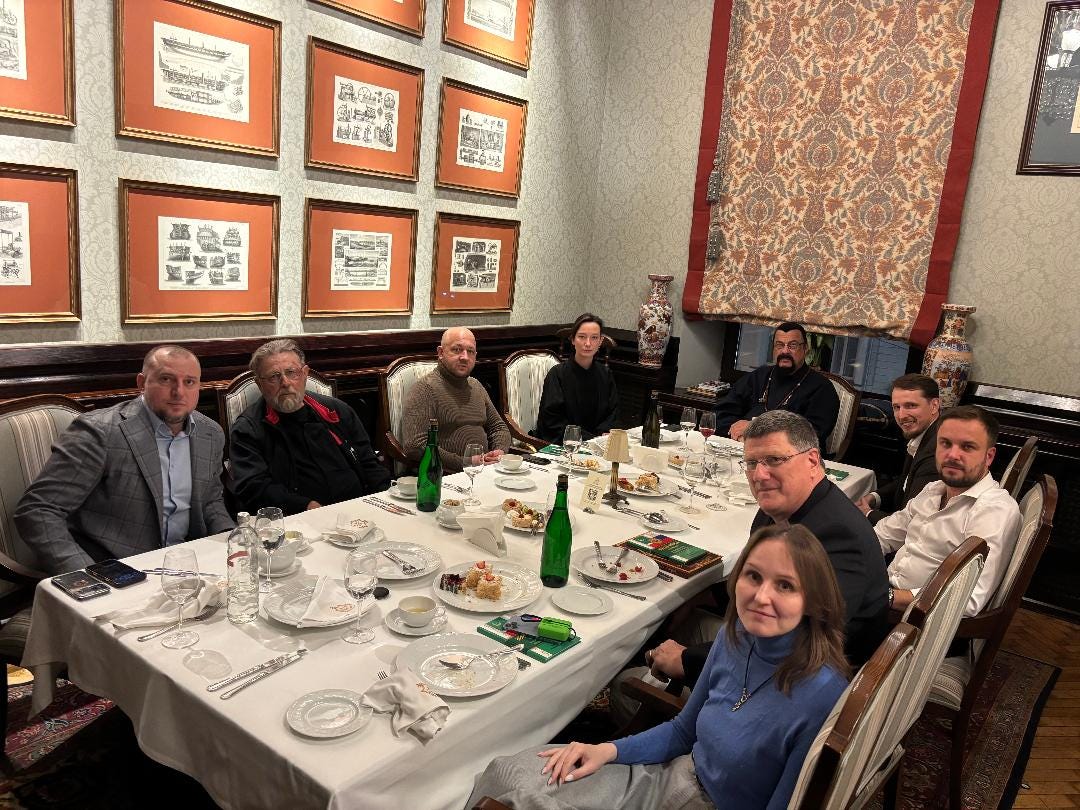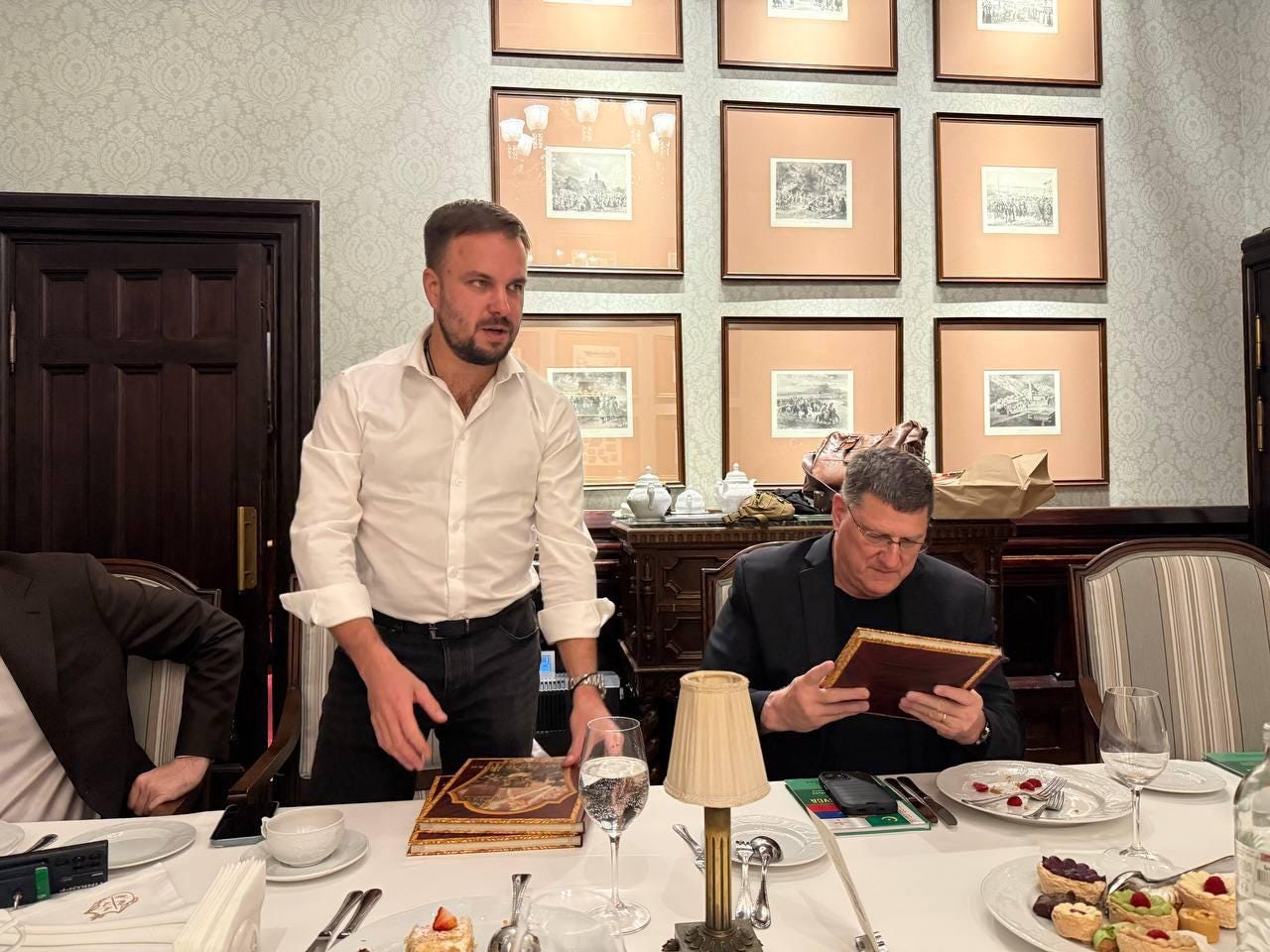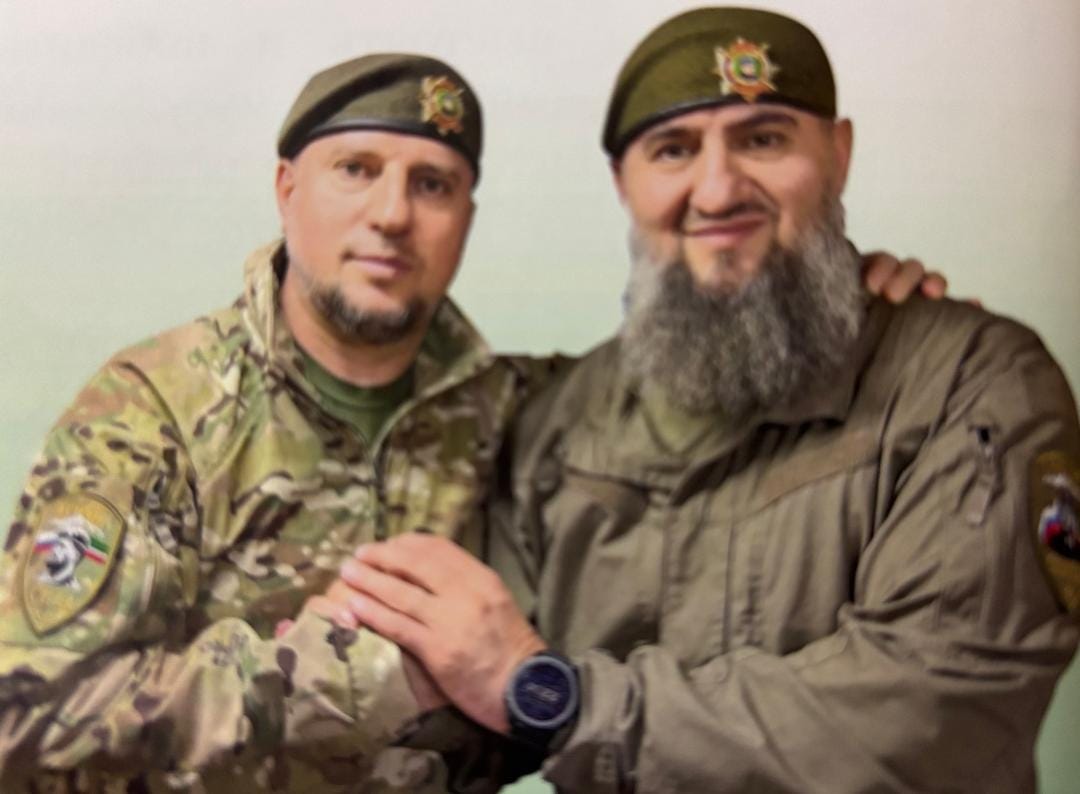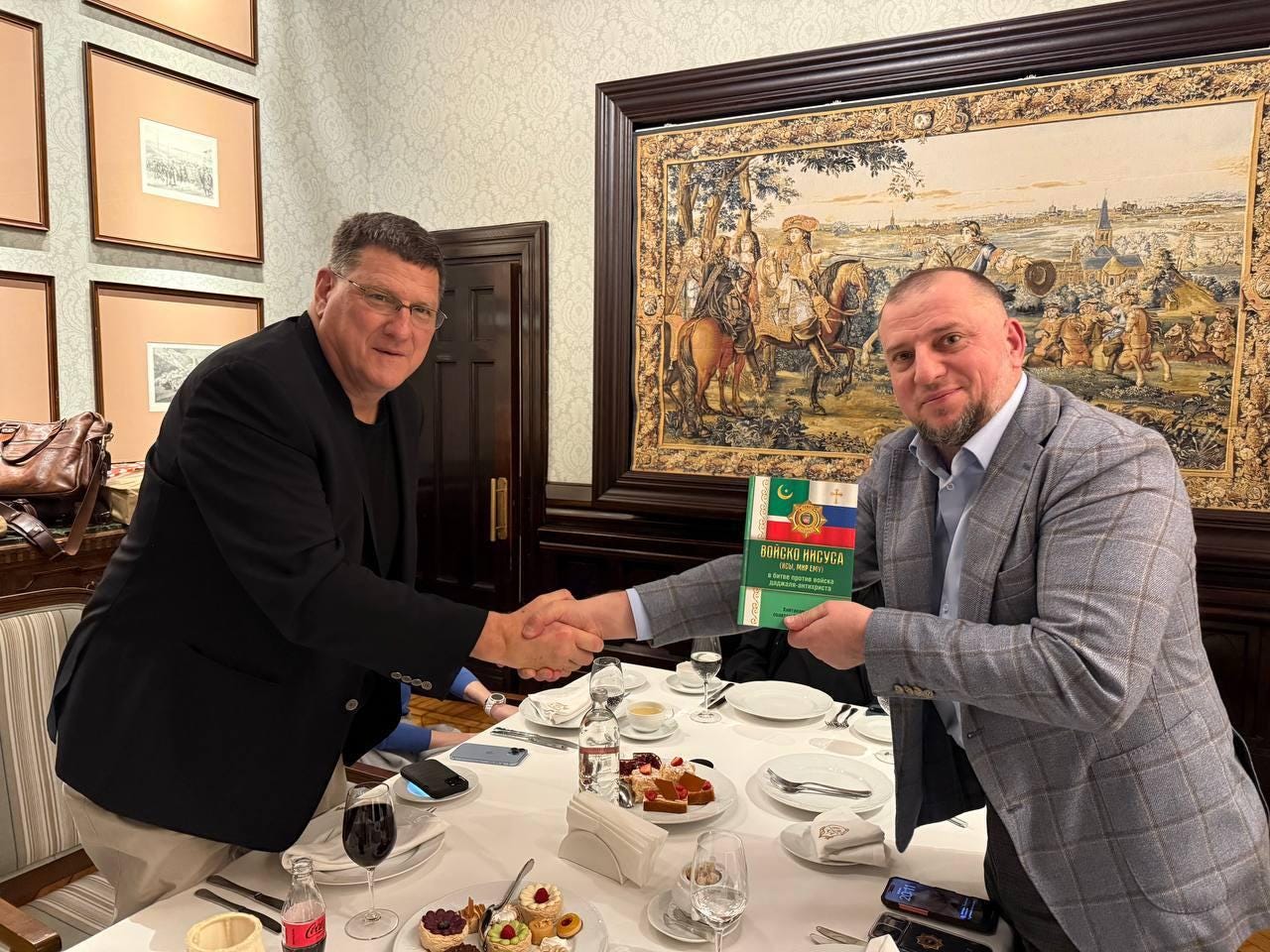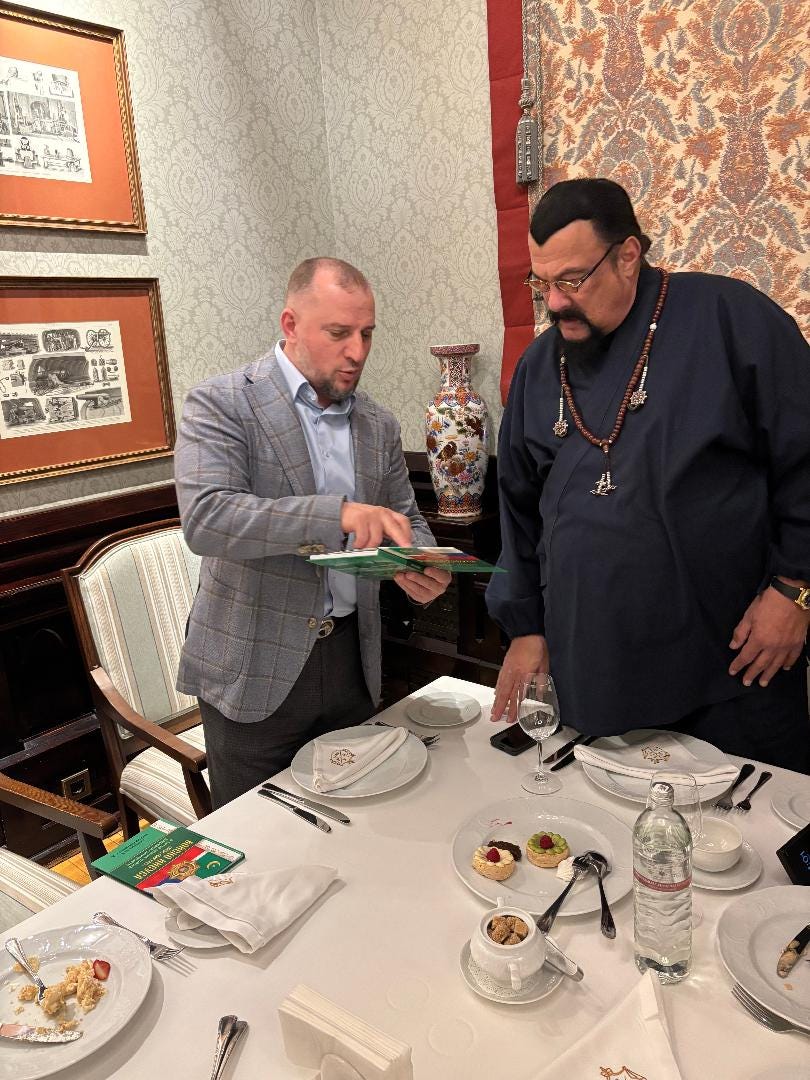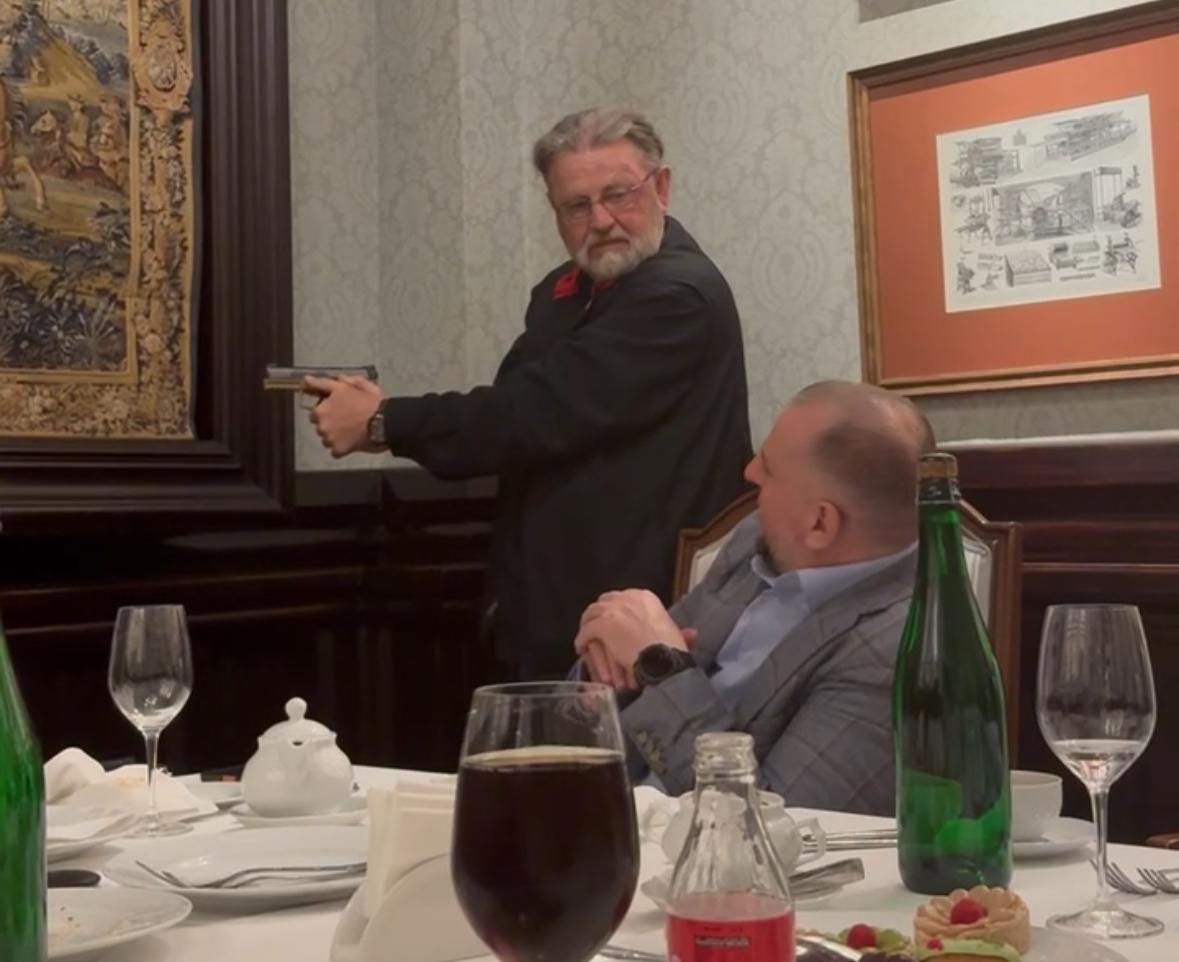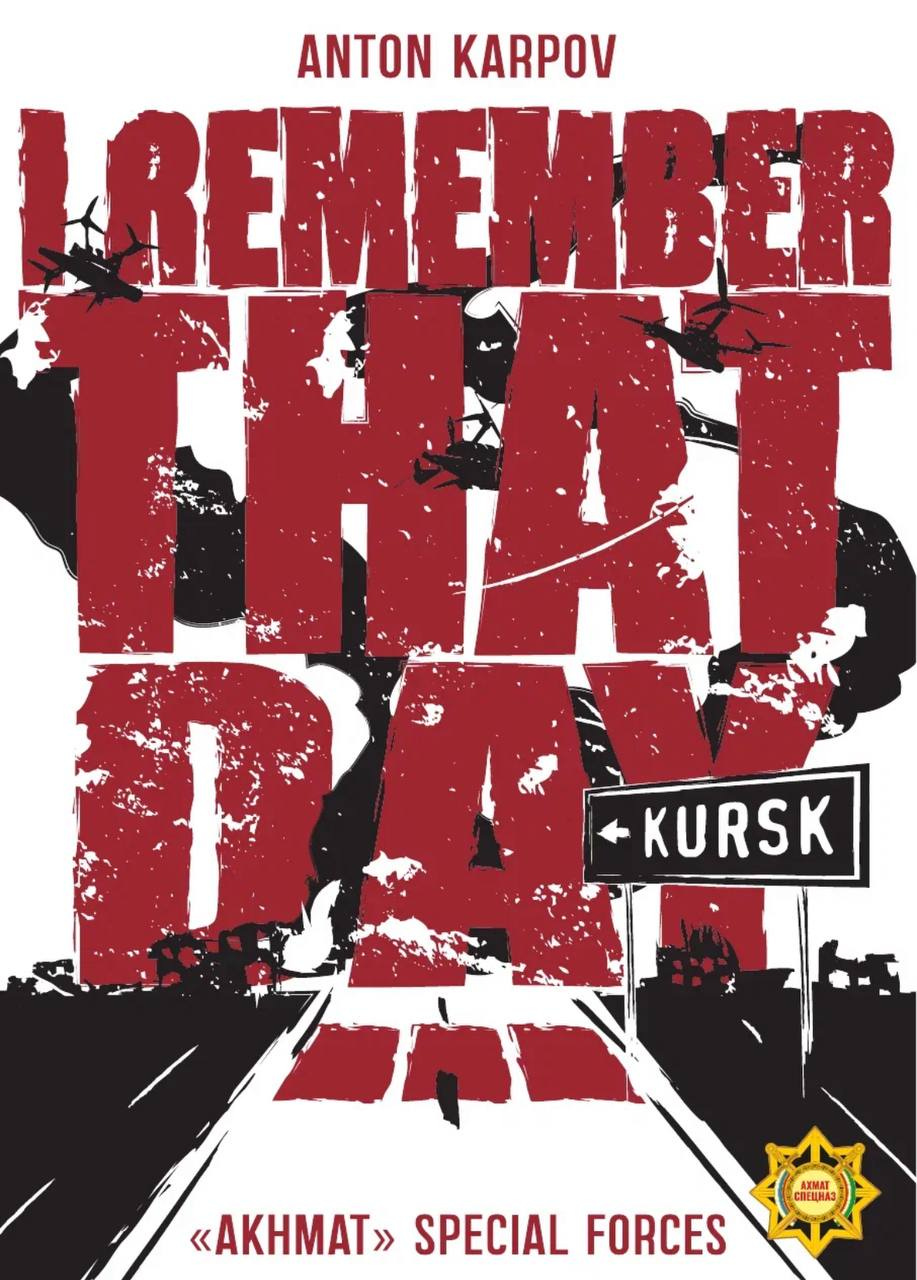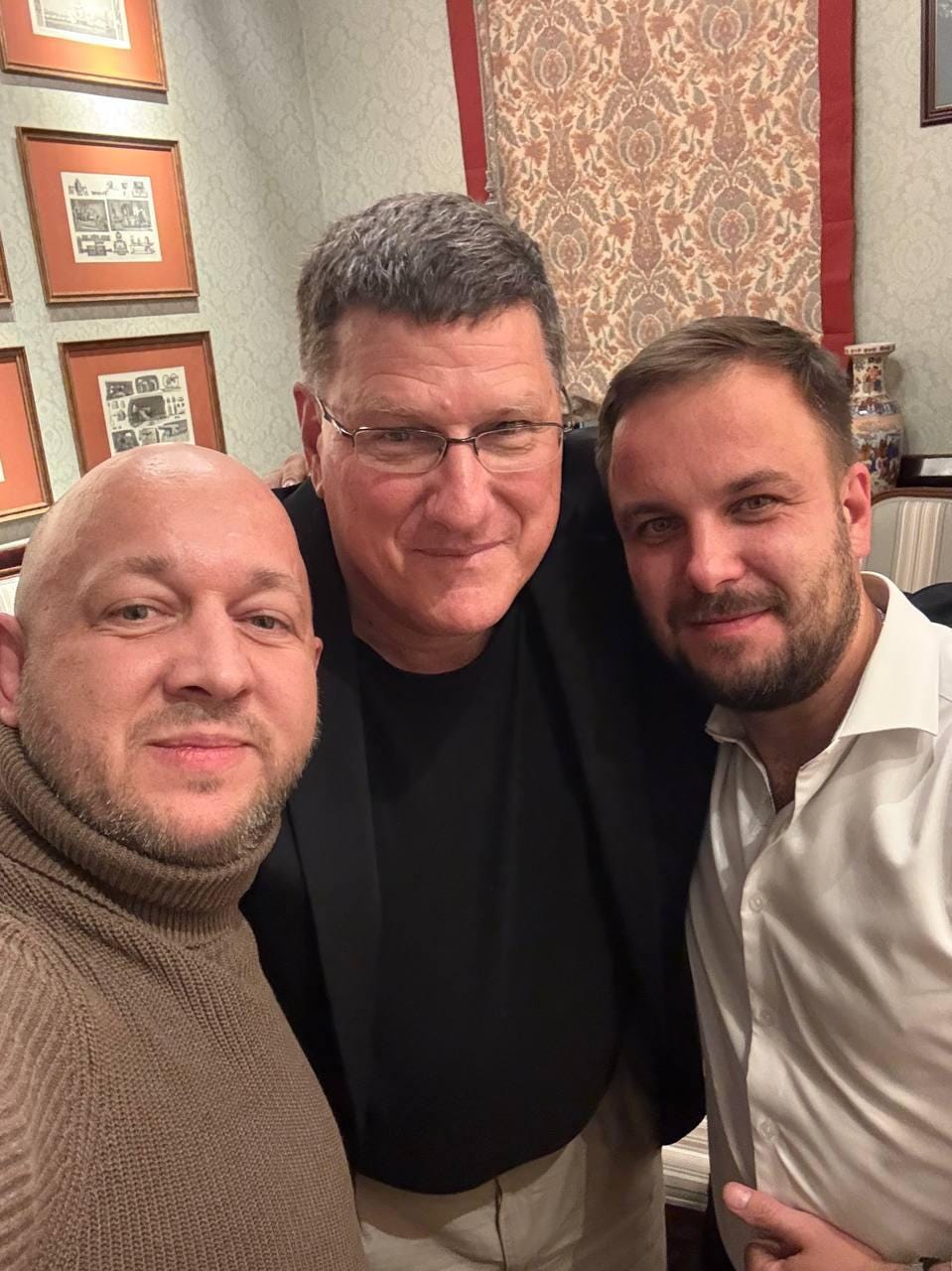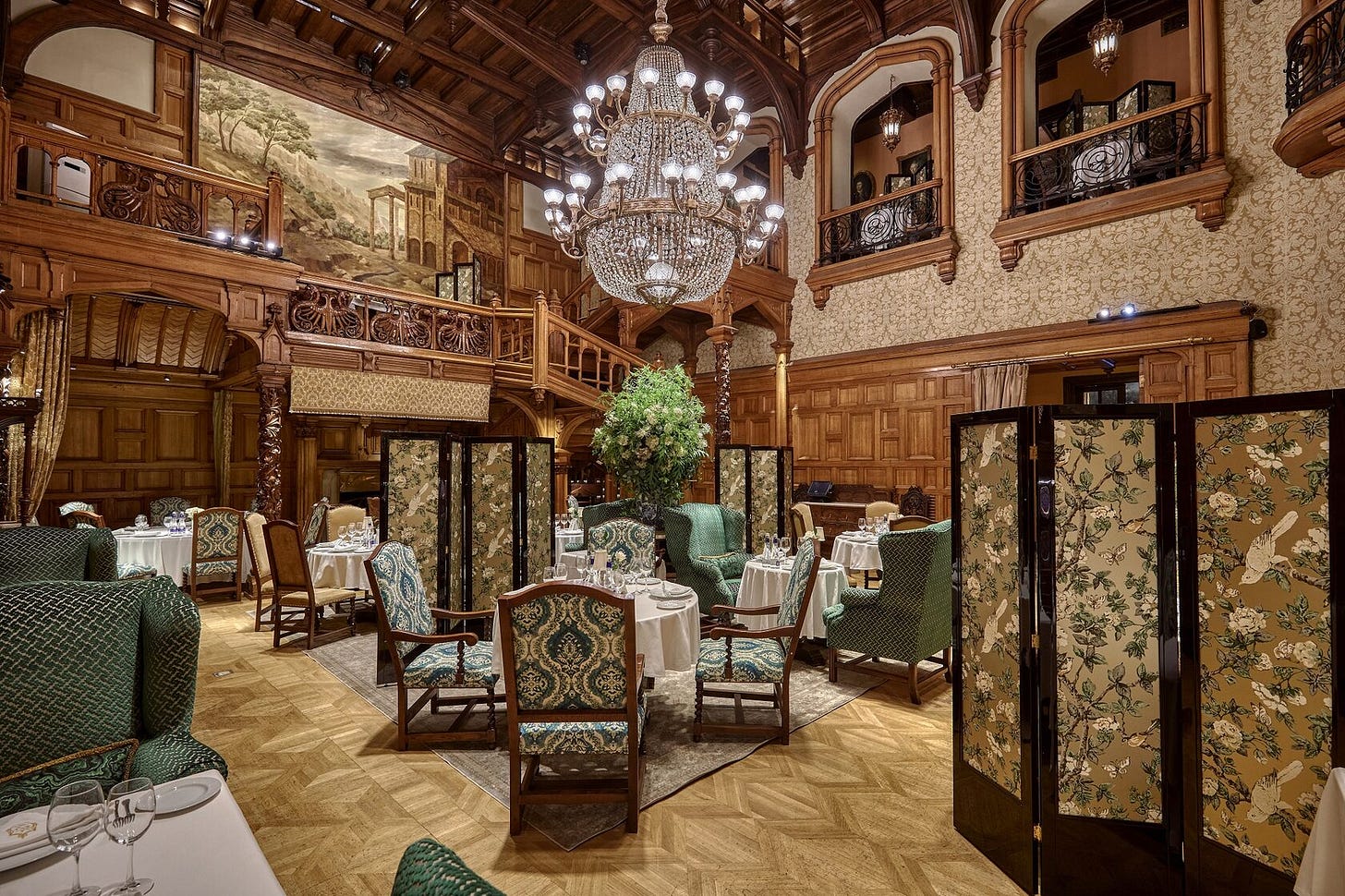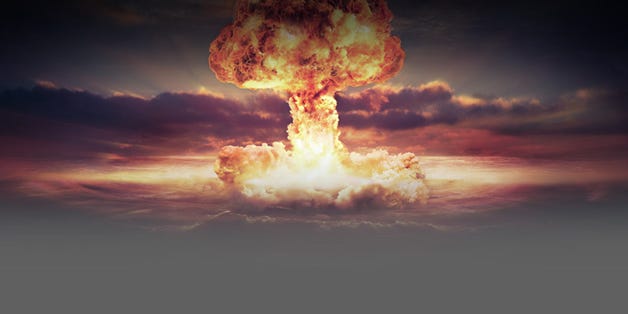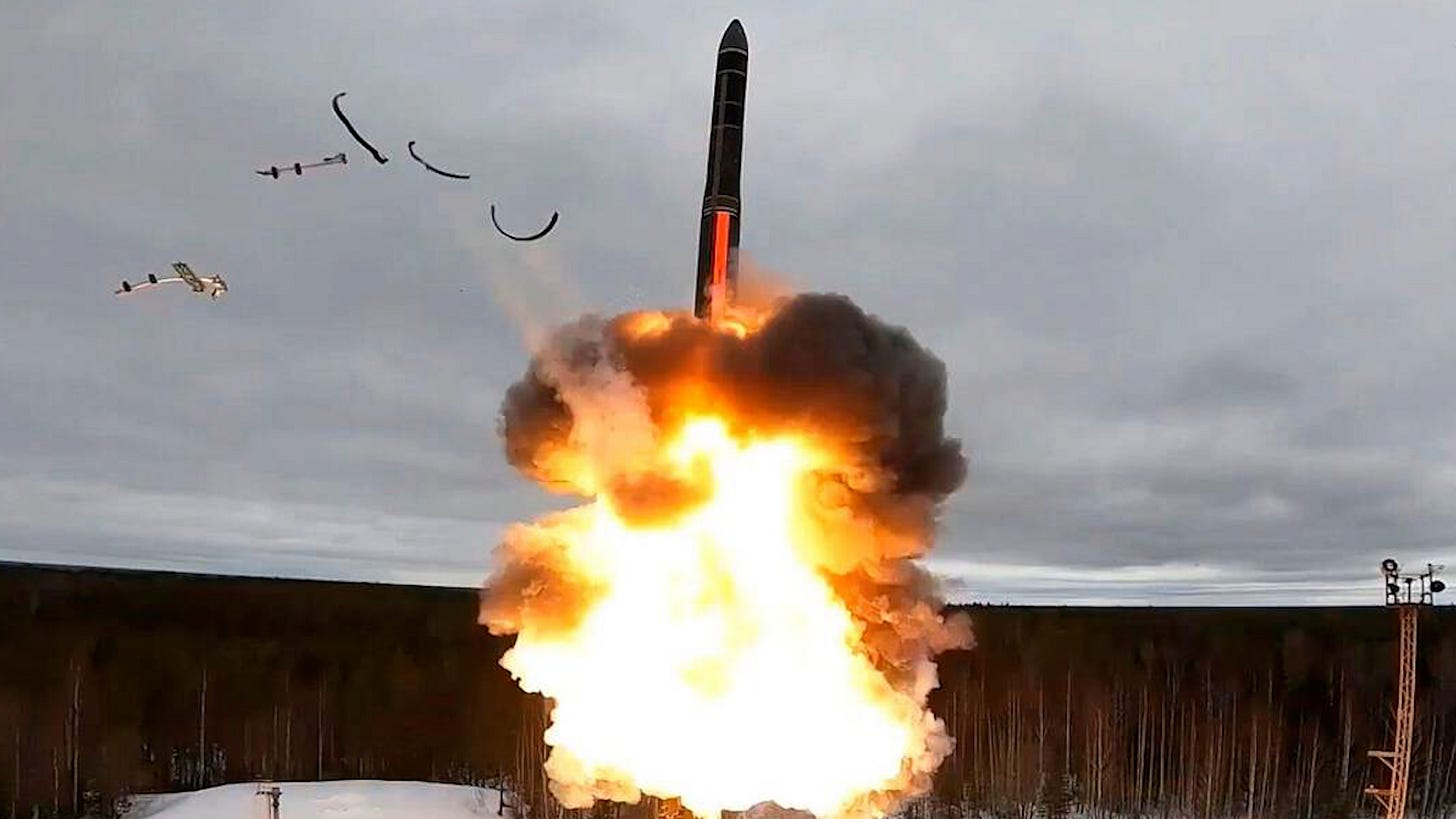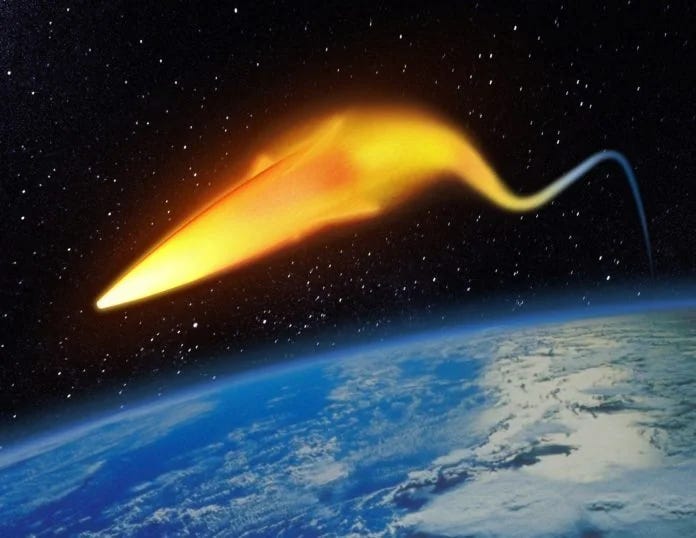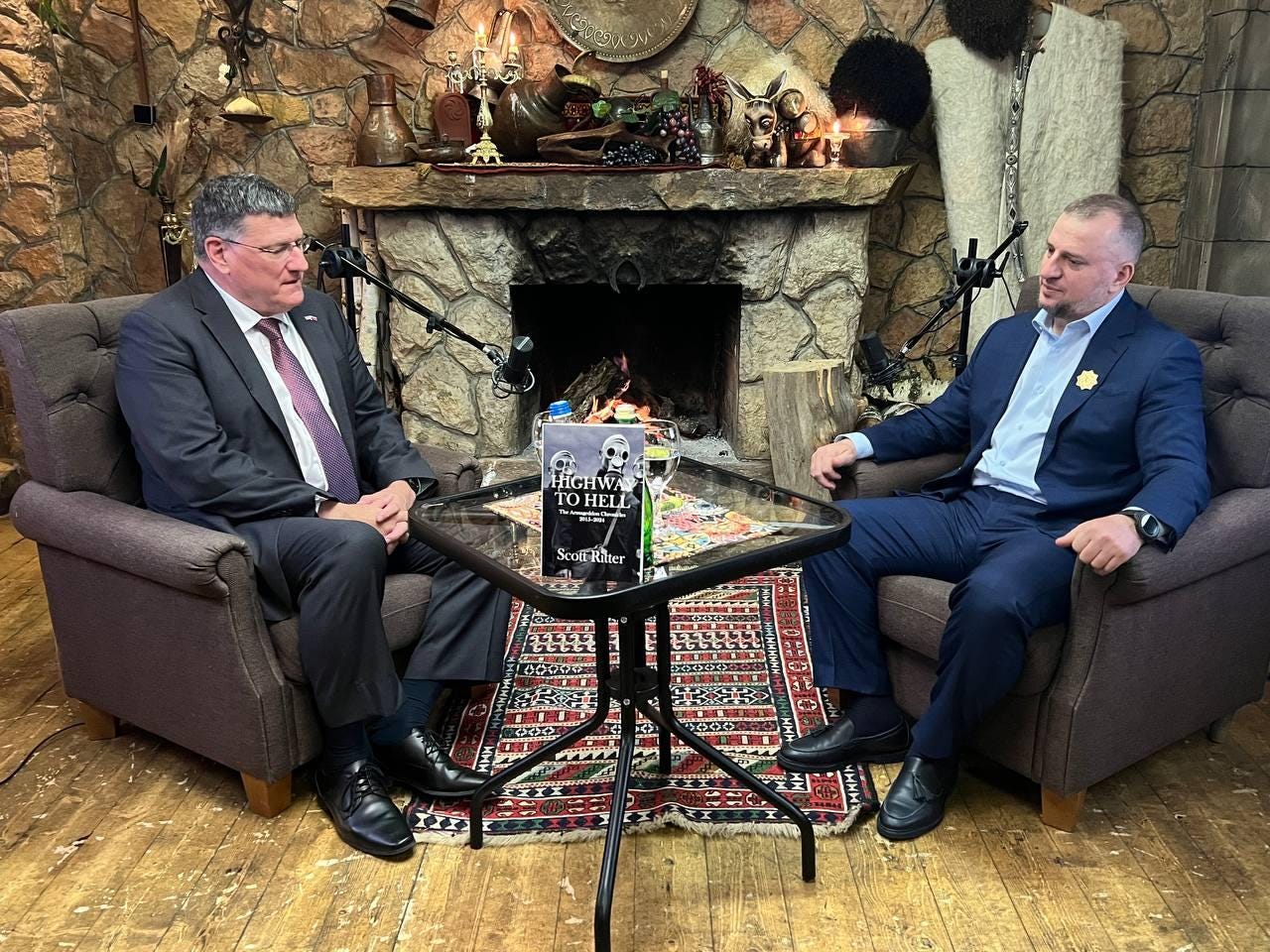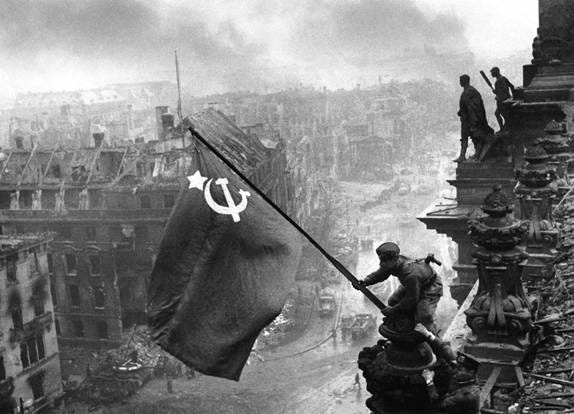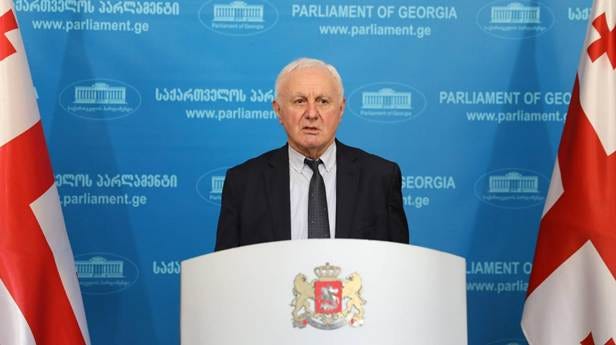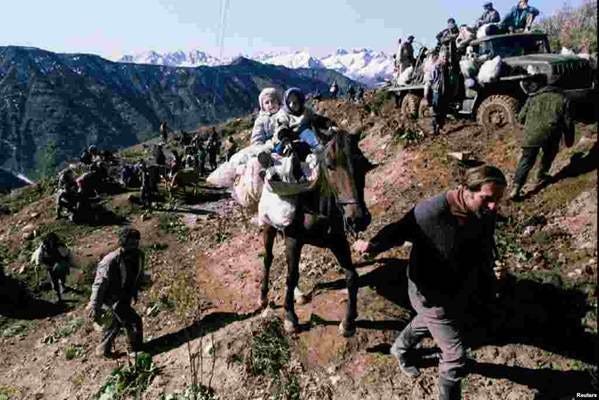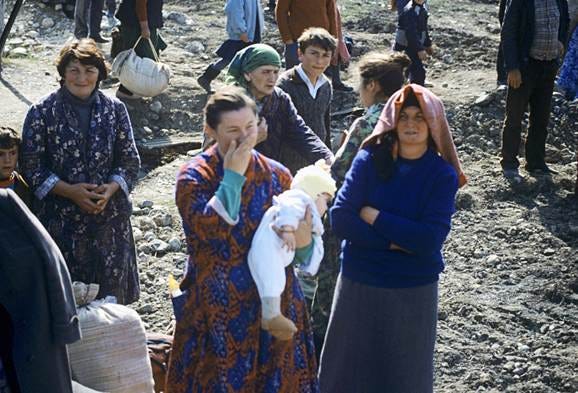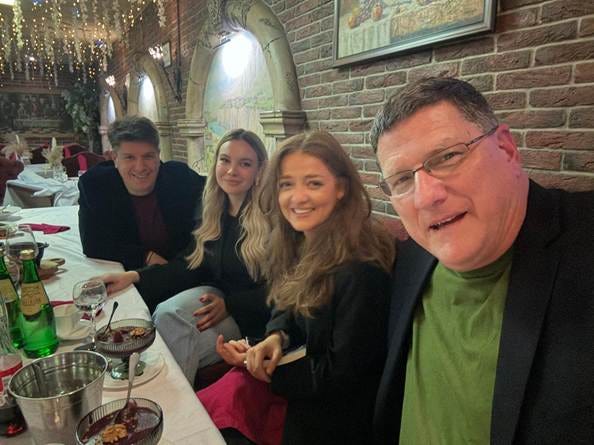RT Turns 20 https://substack.com/@realscottritt
I’m in Moscow to help celebrate RT’s 20th Anniversary. There’s no place I’d rather be. Let me explain why.
Margarita Simonyan, the editor of RT
On June 7, 2005, Margarita Simonyan, an intelligent, articulate Russian journalist who had previously worked in the Kremlin press pool reporting for Rossiya, a leading Russian state television network, announced the creation of Russia Today. “It will be a perspective on the world from Russia,” she said. “Many foreigners are surprised to see that Russia is different from what they see in media reports. We will try to present a more balanced picture.”
Simonyan was 25 years old at the time.
RT went live on December 10, 2005, and the journalistic world has never been the same.
Russia Today, operating on a shoe-string budget of just $30 million (by way of comparison, CNN, a major American media outlet, had an operating budget of $2.5 billion in 2005) struggled to make a dent in the international news market.
Russia Today’s big break came in August 2008, during the short-lived Russian-Georgian War. Georgia and its Western allies painted the conflict as a flagrant example of modern-day Russian imperial ambition. Russia told a different story—that it was Georgia who was the aggressor, and that Russia was simply acting in accordance with its treaty obligations to defend South Ossetia from outside aggression.
Russia had brokered a ceasefire and negotiated an agreement in 1992 known as the “Sochi Agreement.” The agreement, which brought an end to fighting between Georgian and South Ossetian forces that had been raging since 1991, established a cease-fire between both the Georgian and South Ossetian forces, and defined a zone of conflict around the South Ossetian capital of Tskhinvali which would be monitored by a Joint Control Commission and a peacekeeping body, the Joint Peacekeeping Forces group (JPKF), which operated under Russian command.
The Georgian Army, on August 7, 2008, launched a military incursion into South Ossetia which occupied Tskhinvali and saw Georgia troops fire on the Russian peacekeeping force, killing and wounding scores of Russian soldiers.
The next day, on August 8, 2008, Russia responded with a massive military incursion of its own, driving the Georgian troops out of South Ossetia and subsequently advancing deep into Georgia, threatening the capital city of Tbilisi, before agreeing to a ceasefire brokered by the European Union.
At the time, both the Russian government and the European Union found that the Georgian military the fighting, a finding seconded by the Georgian government in April 2025, when Prime Minister Irakli Kobakhidze declared that “9former Georgian President Mikhail) Saakashvili started the war at the urging of external forces, on orders from the US State Department. The timeline of events is reflected, among other places, in a Council of Europe resolution and the Tagliavini Report, which state that on 7 August 2008, the regime at the time opened artillery fire on Tskhinvali, and the following day Russian troops entered Georgia.”
Julia Ioffe is a Russian-born émigré who moved to the United States at age seven in 1990, graduated with a Bachelor of Arts degree in History, specializing in Soviet History, from Princeton University in 2005, and later worked for two years in Russia as the as the Moscow correspondent for Foreign Policy and The New Yorker, where she developed a reputation as a “Putinologist”—someone who seeks to understand Russia today by deconstructing its leader and his policies. She has described the Russian-Georgia War as “Russia Today’s crucible” observing that, in the first days of the conflict, “when information was patchy and unreliable, RT became exactly what it set out to be: a source of information for the West about what the Russian position actually was.”
The numbers reflected this new reality: viewership of Russia Today topped out at just short of 15 million, and RT broadcasts on YouTube exceeded the one million mark (it should be noted that CNN had the same sort of “break” during the 1991 Gulf War, where the concept of a 24-hour news channel was shown to be attractive to a broader audience. CNN’s viewership during the Gulf War approached 10 million viewers.) According to Ioffe, the Russian-Georgian War was, from the perspective of RT, “the event that best showcased its abilities as a news organization, and that made it a recognizable brand in the West.”
For a “Putinologist” like Ioffe, Russia Today’s transition into the mainstream was baffling. “Russia Today,” she noted, “was conceived as a soft-power tool to improve Russia’s image abroad, to counter anti-Russian bias the Kremlin saw in the Western media.” But, Ioffe, lamented, “Often it seemed that Russia Today was just a way to stick it to the US from behind the façade of legitimate newsgathering.”
Ioffe cites the example of Alyona Minkovski, a Russian-born US citizen who hosted the “The Alyona Show”, a popular part of the RT line up from 2010-2012. When Fox News host Glenn Beck attacked RT for commenting on American political stories (in this case, a story about the New Black Panther Party), Minkovski fired back: “I get to ask all the questions the American people want answered about their own country because I care about this country and I don’t work for a corporate-owned media organization.”
The diminutive American RT host saved her best for last: “Fox…you hate Americans. Glenn Beck, you hate Americans. Because you lie to them, you try to warp their minds. You tell them that we’re becoming some socialist country…you’re not on the side of America. And the fact that my channel [RT] is more honest with the American people is something you should be ashamed of.”
Later, after he left Fox News, Beck himself admitted that his time at Fox News had been divisive for America. “I made an awful lot of mistakes,” he said in an interview with Megyn Kelly. “I think I played a role, unfortunately, in helping tear the country apart.”
Of course, neither Julia Ioffe or any of the other “Putinologists” could admit that Alyona Minkovski and RT had a point. But the reality is that the anti-Russian elite who dominated the American intellectual and media scene didn’t matter—the American public did. And, as Alyosha Minkovski told CSPAN’s Brian Lamb in a 2011 interview, RT was “on cable in almost every single or every major city in the US. I know that we’re on cable in New York, in D.C., in Chicago, Los Angeles, San Francisco and I believe maybe North or South Carolina. Something, like, 20 to 22 million households now within the US can access RT on cable. Around the world, we’re on satellite. You can always watch us online. The Alyona Show has its own You Tube channel. You can go to the RT.com website and we livestream everything.”
In many ways, RT’s success (Russia Today officially changed its name to RT in 2009 “so as not to scare the audience,” Simonyan quipped) was its undoing. In 2012, a junior CIA analyst named Michael van Landingham, while working at the Open-Source Center, or OSC, authored a study entitled “Kremlin’s TV Seeks to Influence Politics, Fuel Discontent in US.” The “Kremlin TV” referenced was none other than RT.
The OSC was created in 2005 when the Director of National Intelligence transferred the CIA’s Foreign Broadcast Information Service (FBIS) to the Office of the Director for National Intelligence, renaming it the Open-Source Center. The mission remained the same—to collect information available from the Internet, databases, press, radio, television, video, geospatial data, photos and commercial imagery, and to train intelligence analysts to make better use of this information.
In his report, Mr. van Landinghan observed that “RT America TV, a Kremlin-financed channel operated from within the United States, has substantially expanded its repertoire of programming that highlights criticism of alleged US shortcomings in democracy and civil liberties. The rapid expansion of RT’s operations and budget and recent candid statements by RT’s leadership point to the channel’s importance to the Kremlin as a messaging tool and indicate a Kremlin directed campaign to undermine faith in the US Government and fuel political protest. The Kremlin has committed significant resources to expanding the channel’s reach, particularly its social media footprint. A reliable UK report states that RT recently was the most-watched foreign news channel in the UK. RT America has positioned itself as a domestic US channel and has deliberately sought to obscure any legal ties to the Russian Government.”
When asked by Brian Lamb about who owns RT, Alyona Minkovski answered without hesitation, “RT is publicly funded. So its funded by the Russian government.”
And RT has published its budget for the public to see ($400 million in 2014).
So much for obscurity.
Moreover, the idea that a state-funded media is anathema to a free press is somewhat mooted by the existence of the Broadcasting Board of Governors (BBG), an independent federal agency of the United States government that oversees civilian US international media (USIM), including the Voice of America (VOA), Radio Free Europe/Radio Liberty (RFE/RL), the Office of Cuba Broadcasting, Radio Free Asia (RFA), and the Middle East Broadcasting Networks. The BBG oversees 61 language services, 50 overseas news bureaus, 3,500 employees, and 1,500 stringers among the five media entities. In 2015, it had an annual budget of $751 million
According to the BBG, these networks are founded on the belief that it is in the interest of the United States to communicate directly with the people of the world and for the people of the world to have access to accurate information about local, regional, and global events, including in the United States. International audiences turn to VOA and the other BBG-supported media, the BBG asserts, because they count on their accuracy and reliability. If the BBG were to engage in propaganda, the BBG states, “our audiences would simply tune us out and we would not be able to accomplish our mission.”
In 2015 RT was the number one TV news network on YouTube, with nearly 3 billion views; more than half of that number belonging to the main RT YouTube channel. RT’s total monthly online audience reportedly exceeded 32 million unique users, and RT was the world leader among non-English speaking international TV news channels, and ahead Al Jazeera, Deutsche Welle and Voice of America in terms of worldwide audience. RT also outperformed all other foreign broadcaster in the US market, with Nielsen research reporting that 2.8 million people in seven major US urban areas watch RT weekly, greater than the audience of Euronews, Deutsche Welle, NHK or France 24.
The world was listening and had apparently cast its vote: RT was a world leader in terms of viewership and influence.
RT’s success, however, wasn’t because the BBG had failed at its job, but rather because US mainstream media had failed at its job—informing the American public. There was a notable decline in the professionalism of American mainstream journalists which, when combined with a discernable reduction in media literacy and political polarization amongst the American people, led to a collective inability to understand the policy implications of the promises being made by politicians and their allies in the mainstream media. RT’s strength was exploiting the credibility gap created because of the collective incompetence of the US mainstream media and the American consumer at large, providing credible information that resonated with an audience that had grown increasingly skeptical and jaundiced.
Rather than admit that they were the problem, the American political class instead collaborated with their US mainstream media partners to shift the blame of an increasingly dysfunctional American society away from where it belongs—their own shoulders—and instead onto those of RT.
This issue came to a head in 2016, when the FBI and CIA, working hand in glove with the Democratic Party and the Obama administration, manufactured out of whole cloth allegations of Russian collusion with the campaign of Donald Trump during the 2016 election. The myths that sprang up about RT’s role in pushing for a Trump victory were as numerous as they were unfounded. But it didn’t matter—perception creates its own reality, and the repeated claims by respected senior members of the FBI and CIA made before the US Congress—and echoed by an unquestioning mainstream media—that Russian President Vladimir Putin had supported, aided and abetted the candidacy of Domald Trump became the gospel truth to those in search for a new Russian enemy.
James Comey, the former Director of the FBI, in testimony before the US Congress, noted that “[T]he Kremlin is waging an international disinformation campaign through the RT propaganda network which traffics in anti-American conspiracy theories that rivaled the extravagant untruths of Soviet era.”
But Comey’s assertion runs afoul of the conclusion reached by the CIA’s Peter Clement, who served as the Deputy Director of the Eurasia and Russian Mission Center during the period covered by the 2016 Presidential race, “A lot of our internal domestic problems are in fact of our own doing,” Clement declared, “I think the Russians have been very good at exploiting this. The polarization was already there. I don’t think this was generated by the Russians.”
“Exploiting”, however, has a multiplicity of meanings and definitions.
All RT was doing was reporting the truths about the 2016 national election.
The only “exploitation” taking place was filling the informational vacuum created by the failure of American mainstream journalism to do its job.
In January 2017 the Director of National Intelligence published what is known as an “Intelligence Community Assessment”, or ICA, about alleged Russian interference in the 1016 Presidential election. Appended to this declassified report was Michael van Landingham’s 2012 assessment of RT. Following the publication of that report, the Department of Justice determined that RT America comply with registration requirements under the Foreign Agent Registration Act (FARA).
While the Russian government maintained (accurately, as it turns out) that it played no role in influencing the 2016 US Presidential election, the fact is that RT was simply doing what any responsible media outlet would do—report the news. RT’s editor in chief, Margarita Simonyan, decried the Department of Justice’s decision, but noted that it would comply with the demand in order to avoid further legal action by the US government.
“Between a criminal case and registration, we chose the latter. We congratulate American freedom of speech and all those who still believe in it,” Simonyan noted on her Twitter account.
The US State Department at the time stated that registration as a foreign agent was a mere formality that would not affect the broadcaster’s operation in the US. And yet immediately after the State Department made this statement, the US Congress stripped RT of its credentials, citing its FARA registration as the reason.
Once again it was left to RT to articulate the importance of free speech in America, and the danger of having the notion of a free press trampled on by the US government.
“To all the self-righteous defenders of ‘freedom of speech’”, Simonyan said after the Congressional decision was announced, “who oh-so-ardently proclaimed that FARA registration places no restrictions whatsoever on RT’s journalistic work in the US: Withdrawal of Congressional credentials speaks much louder than empty platitudes. And to borrow from Orwell, all ‘foreign agents’ are equal, but looks like only RT is denied congressional accreditation on the basis of FARA status, while the likes of NHK and China Daily carry-on business as usual, and US officials continue to claim that the forced FARA registration for RT America’s operating company isn’t at all discriminatory.”
In late 2019 I was contacted by an editor with RT’s online English language web service, RT.com, about writing content for their web page. At that time, I was already being published on a regular basis by The Washington Spectator, The Huffington Post, TruthDig, The American Conservative, and Consortium News. I would not be an employee of RT, but rather a contributor who would be compensated for each article. The agreed upon level of compensation was on par with the media outlets which already published me.
My very first article, “‘Russian aggression’ is just a pretext for US politicians to further bloat 2020 defense budget, while Moscow won’t even care”, was published on December 23, 2019. “By including provisions to stop Russian pipelines and target Russia’s actions in Syria,” I wrote, “the new US defense budget demonstrates Washington’s overreach, but likely does nothing to rein in Vladimir Putin.”
It turned out that my analysis here, and in my other articles published on RT, withstood the test of time.
I will note that the RT editorial “touch” was the lightest of any outlet I’ve ever been published it. I was the originator of most of my ideas, although on occasion RT would ask me to write about some breaking news (literally the conversation would go something like this: “Trump is speaking today on defense spending. Would you be able to write something about this?”).
The notion that I parted with any notion of journalistic or ethical integrity by having articles I wrote published in RT is absurd.
And yet, in September 2020 the Journal of Communications published an article, “Anything that causes chaos: The organizational behavior of Russia Today (RT)”, authored by Mona Elswah and Philip Howard. Ms. Elswah was a graduate of Oxford University’s Internet Institute, where she received her PhD. During that time, she served as a research associate of her PhD supervisor, Philip Howard. Howard specialized in what is known as “computational propaganda” and has made a career out of writing and researching about the nexus between democracy and technology on behalf of his underwriters, who include George Soros’ Open Society, the German Marshall Project, and the National Endowment for Democracy, who’s affiliated agency, the National Democratic Institute, awarded him the “Democracy Prize” in 2019 (former US Secretary of State Madaleine Albright made the presentation.)
Curiously, the Elswah-Howard paper opted from the start to avoid discussing the content presented by RT but rather zeroed in on RT’s “organizational behavior”, which was defined as “an applied behavioral science that investigates the impact individuals, groups, and structure have on behavior within a certain organization.”
Elswah-Howard, in their paper, sought to “advance the theory about the organizational behavior within the newsroom and news production” to explain “why some sources of political news and information produce the content they do.”
After declaring that RT was founded on a legacy of Soviet-era media practices where central authority dictated journalistic outcomes, the authors note that the best description of RT is a “neo-Soviet” model called “neo-authoritarian” in which media outlets “have limited autonomy and where private ownership is, to some extent, tolerated.”
Are you confused? I am.
“Although it might be tempting to compare RT’s organizational behavior with other media outlets,” the authors wrote, “this study focusses only on RT.”
The author’s then decried RT’s practice of having its employees sign non-disclosure agreements, something every major US mainstream media organization does as standard practice.
But we’re just talking about RT here.
Don’t get distracted.
“RT’s organizational behavior,” the authors later conceded, “may share some practices with other news organizations.”
But RT was different. “Journalists at RT,” the authors observed, “continue to be subject to Soviet-style socialization and self-censoring.”
The main “tactic” used by RT in this regard was “socialization”.
“Socialization at RT,” the authors wrote, “depends largely or earning the loyalty of the journalists” by “”integrating the attitudes, habits and state of mind into the employees which should then lead them to reach decisions in favor of the organization.”
In short, RT treated its employees with respect and paid them well.
RT’s editorial control was exerted by publishing a “style guide” on “terms journalists should use to refer to regimes, countries and political groups.”
I regularly write for Energy Intelligence, a major on-line publication.
Energy Intelligence has a style guide that I must adhere to.
It doesn’t make them controlling—just professional.
The authors of the study on RT’s organizational behavior state that they “were able to obtain a copy of the guide that is being handed to newly hired journalists to help them understand the production process. This document,” the authors concede, “does not provide any political editorial directives but, rather, provides a professional guide for journalists who are just starting their career at RT.”
The authors, unable to document their theories about RT’s controlling practices, then cite unnamed sources who speculate that journalists at RT “were being told about the editorial policies of the channel through internal talks with the editors, rather than through a formal, written style guide. The journalistic socialization at RT”, the authors conclude, “is mostly pursued during casual day-to-day directives.”
Back to the conclusions reached by the author’s regarding RT’s “socialization” of its journalist. “RT’s social controls do not focus upon coercion and fear,” they concluded, “but rather the benefits of working for RT,” noting that “non-Russian journalists often joined and stayed with RT for career progression.”
The goal of the paper was to denigrate RT, and the author’s spent a great deal of time trying to do just that. But at the end of the day, the only fact-based assertions they could make was that RT operated as a legitimate journalistic organization, and that it was a great place to work.
This reality escaped the United States Department of Justice, however. The theory that RT was an organ of Russian state propaganda or, worse, an active participant in a broader campaign designed to sow chaos and confusion amongst an American audience in order to manipulate it to achieve electoral outcomes preferred by the Russian government, underpinned every judgement made by the Department of Justice.
In 2024, the Department of Justice weaponized this theory, launching a frontal assault on RT and people affiliated with RT. My home was raided by the FBI, as was the home of an RT producer who used to book my appearances on RT news programs. RT was declared a “foreign mission”, which precluded any operations on US soil.
I’ve written about my experiences in this regard, and how I view them as a frontal assault on free speech and a free press in the United States.
I have previously wrote about by extensive experience working as a journalist with CNN, NBC News, and Fox News. When it came to issues of national security importance, the news rooms of all three organizations, I wrote,” were literally subordinated to the US government, taking their talking points directly from either the White House, the State Department, or the Pentagon.
In short, these news organizations did not produce news, but rather American propaganda which was designed to deceive the broader American audience about critical issues of war and peace.
The news organizations I observed firsthand were more representative of a state-controlled media than a free press.
I also noted that, “if called upon to compare and contrast, based upon my own personal experiences, the level of journalistic integrity between these US media outlets and RT, RT wins hands-down.”
I stand by this assessment.
When I received the invitation to attend RT’s 20th Anniversary celebration, every fiber of my body screamed at me to turn it down.
I had just had my passport returned to me this past summer, and had already made a visit to Russia that proceeded with no interference from the US government (my passport had been seized on June 3, 2024, as I was preparing to board a flight to Saint Petersburg, where I was scheduled to appear of two panels hosted by RT.)
The FBI had just begun returning to me items they had seized during their raid on my home in August 2024.
The safe choice would have been to simply decline the invitation without comment.
But RT is a legitimate media organization whose voice provides essential information and perspective to an American audience being denied just that by US mainstream media outlets.
Free speech and a free press go hand in hand.
And for America to truly be a land where free speech and a free press exist in more than just theory, the RT must be able to practice its particular brand of journalism free from restriction or stigma.
As President Trump and President Putin navigate the troubled waters of current US-Russian relations toward a destination marked by normalcy and mutual respect, one can only hope that the restoration of RT as a news organization untainted by the unjust and inaccurate label of “foreign mission” or “foreign agent” will be part of whatever arrangements are made in this regard.
But perceptions create their own reality, and as long as people act as if RT is somehow leprous when it comes to the practice of journalism, then change will be slow, if at all.
If I turned down RT’s invitation, then I would be reinforcing the impression that RT was somehow tainted and not worthy of being treated as the legitimate journalistic organization that it, in fact, is.
In this regard, I had no choice but to accept as a matter of principle.
But allow me to conclude with something even more important.
Forget politics.
Let’s talk about people.
The producers, editors and journalists at RT with whom I have had the pleasure of working with over the course of the past six years have been some of the most decent human beings imaginable—genuinely good people who care deeply about others not from any professional mandate, but rather because they are, in their hearts, fundamentally decent human beings.
It is an honor and privilege to know them and count them as friends and colleagues.
And I will be proudly standing side by side with these amazing people later today as we collectively celebrate the anniversary of an organization that has, literally, changed the world we live in.
For the better.
Happy 20th Anniversary RT.
May you celebrate many more.
oooooo
Trip to Russia and The INF Treaty https://substack.com/@realscottritt
In this video, I discuss my two upcoming trips to Russia, and the importance of independent journalism and citizen engagement to creating an atmosphere in the United States supportive of arms control.
If you would like to support my ongoing work on promoting disarmament by helping defray the costs of travelling and working in Russia, please contribute. All donations will be used to promote my work in countering Russophobia, bringing the Russian reality to an American audience, and helping bring awareness to the need of renewed arms control agreements between the US and Russia.
Thank you for your support.
Thank you, Scott. And to round things up, could you share just a few things about your upcoming trip to Moscow or maybe you and Judge are going to visit some other city? What could you say?
Well, I actually have two trips coming to Russia. The short term, I leave tomorrow to join Judge Napolitano, Larry Johnson and others in Moscow to help celebrate the 20th anniversary of RT. And, you know, there’s there’s many reasons why I shouldn’t do this. All because of the hate and the prejudice that exists in the United States and
towards RT, which is why I have to do it. RT is a legitimate media outlet. You don’t have to agree with what they produce, what they air, but RT is a legitimate media outlet. And in a nation that believes in freedom of speech and the freedom of press,
for the United States to treat RT the way they do is absurd. And having received an invitation from RT for me to back down and say no would create the impression that I didn’t view RT as a serious media. I view RT as a very serious media outlet.
I used to write articles for RT as a contributing writer. I have nothing but the highest respect for RT as I do for other legitimate media outlets. And so it’s an honor and a privilege to be invited to be there to help celebrate their 20th anniversary. But this trip is purely for that purpose. It’s not
It’s not for anything else. We’re being invited as the guests of RT and during our time in Moscow, you know, we will accord ourselves in that way. I am returning to Russia in November for a longer visit. I think it’s 24 days. And I will visit other cities. It won’t be as extensive as previous trips.
Moscow, I’m hoping to go to Minsk. Put two and two together about who I’d like to meet in Minsk. And definitely St. Petersburg. A fantasy of mine would be that I could find three days to get down to the Donbas. But that’s probably just going to be in the fantasy realm right now.
The main purpose of this trip is to, again, continue the work of the Russia House, which is my podcast that I put out on Telegram, also on VK, also on Substack and on X. And the purpose of the Russia House is to bring the Russian voice to an American audience to capture Russian reality.
We do that like this over over you know video but what i’ve found is that by interviewing people in person the qualitative aspects of the interviewer just ratcheted up and so we’re going to go to russia we’re going to carry out some interviews with that but and and and you
know continue to help um increase the profile of the russia house but it’s also calendar driven i mean why november The weather sucks. If you really want to go to Russia, don’t go in November because it’s miserable. It’s going to be cold. It’s going to be wet. It’s going to be rainy.
But it’s also the time where we have to be talking about arms control. I mean, you know, we are in a very dire situation. The new START treaty expires on February 5th of next year. when i originally conceived the november trip it was to go to russia to be able to
talk to russian officials about arms control the prospects of extending the new start treaty and then take this message back and work magic in the halls of congress maybe even get an audience with the white house to say you need to you know reinvigorate your efforts on arms control it looks like the treaty’s going to die
um it looks like the russian government got tired of waiting for united states to do something and it’s going to die but vladimir putin in a recent meeting of his security council said that he would be open to a one-year moratorium on the quantitative caps the 1550 deployed nuclear weapons that each side is allowed to
have um and that he would buy a year this buys a year to be able to come up with um a new arms control vehicle to talk about arms control in a convincing fashion so again now i will come to russia it’s very difficult time because to be honest the
russian government what why would they want to talk to me i mean um you know i’m not i’m i can’t negotiate on behalf of the united states nor would ever try to the logan act prevents that i’m a private citizen um you know Putin has made his statement waiting for the US government.
What I would say to any Russian listening right now, is that if you’re waiting for the advisors of Donald Trump to advise him on the necessity of being serious about arms control, you will wait forever. There are no advisors around him making that argument. Indeed, the people who should be, Marco Rubio, the Secretary of State,
gutted the American arms control community within the government back on July 19th. 1,300 people were fired from the State Department, many of them coming from arms control jobs or jobs related to bettering US-Russian relations. they’re gone. They haven’t been replaced. The offices that used to focus singularly on arms control have been consolidated now with counterterrorism and counter-narcotics.
Given what’s going on with Venezuela, understand that the priority of these offices will not be arms control. And so we have to talk about the role of the American citizen. The role of the American citizen is essential here. Maybe the Russian people and the Russian government don’t understand how essential it is. I don’t mean to be insulting,
but understand that a million people marching in Central Park in June of 1982 opened the door that led to the INF Treaty being signed between Gorbachev and Reagan in December of 1987. Without Central Park, there would have been no INF Treaty. I’m not saying that I can guarantee a million people in the streets.
That kind of thing doesn’t happen any day, but What I can do is generate a discussion using alternative media, independent media that can get millions of Americans involved. These Americans have the ability to call their members of Congress and begin a pressure campaign designed to take the arms control opportunity serious.
But this can’t happen unless the American people believe that the Russians are serious about arms control. So I would love to have conversations with the appropriate level of Russian leadership. And that’s from the top down to heads of ministries to talk about this issue. It’s essential.
I think it’s also essential to have a conversation about Russophobia and how to defeat Russophobia, that the Russians are sometimes their own worst enemy in this game, because when things get tough, they tend to turtle up and block off communication. Now is the time for communication. And the Russia House is a good vehicle for that.
But if you don’t want to do the Russia House, do something else. If you don’t want Scott Ritter to interview Vladimir Putin, let somebody else interview Vladimir Putin. But an American voice must be injected into the Russian decision making process so the American people can see it.
Without that, it’s Russian on Russian and no Americans listening, not even the president. So this is what I hope to accomplish in November. And I also want to make the argument. And again, hopefully somebody is listening. I’ll I’ll make a statement. We don’t trust you. I’m not saying there’s reason behind that.
I’m not saying that you’re not worthy of trust, but we don’t trust you. You see, we have told, we have been told by our government that you cheated. You cheated on the INF treaty. You cheated. Donald Trump pulled out of the INF treaty. And we say, this is why it’s so important right now,
because he’s the president of the United States. And he pulled out of the INF treaty because he was told you cheated. And he continues to believe you cheated. And if he’s going to be talking about new arms control, he will always be hesitant because he views you as cheaters. So what are we going to do about that?
When I see we, it’s essential. You see, because I’m trying to sell an argument to Congress and the president that we need an arms control treaty. And when they come back and they say, yes, but the Russians cheat, what do I have to say? I know they didn’t. I know the truth.
But how do I tell that truth to the American people? So one of the things I’m trying to accomplish in November is it to get the Russians to go back to August of 2019, I believe it was, or July maybe, when they put on a demonstration. They brought out the 9M729.
It was a cruise missile related to the 9M728, I believe it was, which is a conventional cruise missile. And they were demonstrating that the two aren’t the same. The propulsion system is the same. Therefore, if the propulsion system is the same and the warhead and the guidance of the new variant is greater,
the range will be shorter than a prohibited system. The United States didn’t attend that because we weren’t in the business of listening to the Russians. Put on the demonstration again for me. Maybe I can bring Ted Postol, MIT professor. Convince us. Show us that you didn’t cheat so we can tell the American people you didn’t cheat.
And we’re not taking your word at it. We’re looking at it. Who am I? I don’t know. Just a former INF missile inspector who actually has pretty good credibility in this regard. Who is Ted Postal? One of the foremost experts on missiles in the United States today. People listen to him.
If we look at the Russian case and we come back and say, no, the Russians were telling the truth. Now we can be into attack. the people who are telling the president the Russians are cheaters. We tell Mr. President, no, they were wrong. Not you were wrong, Mr. President. They were wrong. You can trust the Russians.
There should be a window opened up here for working with the Russians because the Russians take arms control seriously. So that’s what I’m hoping to accomplish in November. And the last thing would be the irresioning. Today, the American people are told that the Russians are bluffing, straight up bluffing, 100% bluffing.
I know they’re not, but the American people are told. So when people say, well, if the United States deploys the Dark Eagle, if this happens, the Eurasianic will come in. We’ve been told that it’s a one-off system, sort of a derivative of the RS-26 Rubiege.
A handful were there in the development stage in Russia, cobbled one together and fired it. But Putin may be talking about you know, mass production, cereal production, but the Russians don’t have enough ammonium perchlorate to do that, that they are limited on their supplies. One factory in Novosibiris, no evidence of expanded manufacturing.
So how do you continue to produce, you know, Iskandar’s in large numbers, have the Yars coming out, and now you’re saying that a Reshnik is coming out? No, it’s all a bluff. The Russians are bluffing. So how do we show that they’re not? It’s easy. Let me visit an Ereshnik site. I’m not talking about getting your secrets.
I don’t want your secrets. But prove to the American people that the Ereshnik is an operational system. Outside of Minsk, in an old SS-20 site, it’s been rebuilt. Ereshnik’s going to be there. Ereshnik exists. Take me to it. I’ve been to SS-25 sites. I know what SS-20 launch sites look like.
I’d be able to look at it and say, yeah, this is real. This is legitimate. and tell the American people, it ain’t a bluff. Let me talk to the Moscow Institute of Thermal Technology, the old Nibiraj Design Bureau, who developed the Oresnik. Scott, why would you want to do that? You’re a spy.
No, you’ve been saying that they developed the missile. Russia said that. I didn’t say that. Russia said that. Russia said it was done by Moscow Institute of Thermal Technology. They said it was done rapidly, that you transition certain… Let’s talk to the designers and say, I don’t want the details, the secrets. No. No.
But when were you told to begin this? I mean, Vladimir Putin has talked about. So let’s talk about that more. Why? To make it real. Let me go to Vodkinsk. When I take a look at Udmer TV, you got reporters in the Vodkinsk facility all the time. I mean, there’s some photographs coming out of Vodkinsk.
I’m like, what the hell are you guys doing? Because people like me can look at those photographs and see things. But you’re doing it. So why not allow me into the Oresnik production hall? Not to get your secrets. But to say, this is where it’s being produced. So I can come back and say, the Ereshnik is real.
It’s being produced. It’s in serial production. And if you fool around, you’re going to find out, America. This is as real as it gets. There are consequences to not having arms control. That’s the importance of it. This is what I’d like to do in November. Whether I’ll be allowed to do any of it, I don’t know.
But what I have told myself is that if there’s going to be a nuclear war with Russia, When I sit on my roof and watch the warhead come in, that’s going to kill me. I at least want to be able to say I did everything possible to stop this, that there was no stone left unturned.
So I’m coming to November and I’m coming to do some important things. Whether or not I’ll be able to do them, that’s another thing altogether. But that’s what I’m trying to do. Could I have picked a better month? No, because there is no time. Would I love to come in the in the summer when it’s beautiful? Yes.
I would love to, but that wasn’t the time. Would I love to wait until May 9th to come in and do it then? Yes, but then it’s too late. We have a very narrow window of opportunity. Decisions are going to be made between now and February that will forever alter the political environment of arms control.
And I want to make sure that every opportunity is given. to American decision makers to make the right decision. But in order to do that, they have to have access to information that they’re not getting from the circle of experts surrounding the White House. This is where the responsibility of the average American citizen comes in.
It’s my duty, my responsibility as a citizen to hold my government accountable, not simply by saying what you’re doing is wrong, but say, here’s a potential outcome. You see, it’s citizenship. It’s a citizen engagement. That’s what we’re trying to do here. Whether we succeed or Who knows? Odds are against me. But as I said, when that missile,
before that missile impacts on Albany, New York, it takes me and my family out. Lisa will be able to turn to my wife and say, honey, I tried everything. I tried everything to prevent this from happening.
scott thank you so much for finding an hour for me just before going to russia thank you for what you are doing and i wish you the best of luck to achieve all the goals you are setting for yourselves to do this thing for for all of us thank you so much Good luck with your trip.
A knock at the door is better than a bomb on the head. Knock all they want. That doesn’t scare me. It doesn’t frighten me. But I would say this. If anybody, Mr. Lavrov, Mr. Peshkov, call me. let’s do something here let’s not sit there and have us all looking at incoming
it and i hope they will i really hope they will they know you here they respect you here and they know you up there in russia so i really hope they will try to figure something
And you’re telling me that you’re not good in Russian. Don’t tell that ever again. So, thank you so much, Scott. Ladies and gentlemen, until the next time.
oooooo
Dinner at Anton’s https://open.substack.com/pub/scottritte
What started out as a simple meeting between a writer and his publisher turned into an unforgettable evening of intellectual discourse among friends and colleagues.
The ad hoc CDL Discussion Group
When I accepted the invitation from RT to attend their 20th Anniversary Gala, I had originally intended to arrive on a Thursday, attend the Gala on a Friday, recover on a Saturday, and fly home on a Sunday. After all, I had numerous competing domestic agenda items on my plate, the most critical of which was my daughter Victoria’s upcoming wedding on November 1st. My wife reminded me that we had many things that needed to be finalized before the wedding, and that the calendar was unforgiving. But when an opportunity came for a meeting about a potential documentary film I was interested in making that could only be held on Monday, I suddenly had a Sunday evening free with no scheduled commitments.
I was scheduled to return to Russia in November to launch the Russian language edition of my book, Highway to Hell, and to undertake several interviews and speaking engagements related to the topics of bettering US-Russian relations and renewing bilateral arms control, themes which resonate in my book. My Russian producer/agent, Alexandra Madornaya, had introduced me to the Konseptual publishing house and its director, Konstantin Antipin, during my previous visit in August of this year. We also met with Anton Karpov, the CEO of the Restaurant of the Central House of Writers, or CDL. From these two unrelated events came the idea of conducting a book launch event at the CDL.
I asked Alexandra if she could organize a dinner for Sunday night with Konstantin and Anton, and much to my pleasure Anton was kind enough to book us a table at his restaurant.
Russia being Russia, nothing happens in a vacuum. On Saturday night myself and Larry Johnson, the former CIA officer-turned-podcaster who had also been invited to RT’s 20th Anniversary Gala, had met up with Steven Seagal, the famous action-hero film star who today resides in Russia, where he serves as an ambassador at large for the Russian Foreign Ministry. I had previously met with Mr. Seagal in January 2024, during an earlier visit to Moscow, and had introduced him to the legendary commander of the Akhmat Special Forces unit, Lieutenant General Apti Alaudinov. Mr. Seagal inquired about Apti, and I forwarded his well wishes to Apti, who immediately informed me he was in Moscow and would like to meet. The problem was I was fully booked, and had no free time left on my calendar for such a gathering.
Anton Karpov, the CEO of the Restaurant of the House of Writers (CDL)
Anton had written a book on the Akhmat Special Forces entitled I Remember that Day, a collection of short stories derived from interviews with the officers and soldiers of Akhmat about their experiences during the Special Military Operation. I had read the English language version of Anton’s book and noted that he had interviewed General Alaudinov. I asked Anton if he would mind if Apti joined us. He immediately agreed it was a good idea. I then opted to push my luck and asked if Steven Seagal could also join us, since Apti had expressed an interest in meeting him. Anton graciously agreed. I then thought of my two partners in crime, Judge Andrew Napolitano and Larry Johnson, and hinted to Anton they these two notable Americans would benefit from being in the company of such men.
Anton, as perceptive as ever, readily agreed, and had our party moved into a more spacious, private dining hall.
And that, ladies and gentlemen, is how history is made.
One by one, our additional guests arrived—first Apti, followed by Larry (the Judge was flying out that night and couldn’t make it), and then Mr. Seagal.
It was around 8 pm by the time we convened the entire group: Apti Alaudinov, Steven Seagal, Larry Johnson, Anton Karpov, Roman Mex (Anton’s collaborator on the I Remember that Day book project), Konstantin Antipin, Alexandra Madornaya, myself, and Mr. Seagal’s assistant.
Prior to Apti’s arrival, we had, in keeping with the literary traditions of the establishment we were located in, been discussing the Russian language version of Highway to Hell (the publisher had brought a full-size mockup of the book, which in Russian was known as Doroga v Ad) and the English language version of I Remember that Day (Anton had a similar full-scale mock-up for us to examine.)
Lieutenant General Apti Alaudinov and Imam Magomed Khiitanev
Not to be outdone, Apti had brought along copies of a new book he had co-authored with Magomed Husseinovich Khiitanaev, the senior Imam (Islamic religious authority) of the Akhmat Special Forces, entitled The Army of Jesus (Isa, peace be upon him) in the Battle against the Army of the Dajjal-Antichrist (in the Islamic tradition, Dajjal is a false messiah, like the image of the Antichrist in Christianity.)
This book addresses the issue of ethics in wartime, especially as applied to the fundamental questions of good versus evil that are intertwined throughout the Special Military Operation. Apti joked that he had acquired the nickname “Preacher” because of the religious undertones of his speeches and addresses to frontline fighters and civilian supporters. Apti noted that the flag of the Akhmat Special Forces, which adorned the cover of his book, bore the symbology of both Islam (the crescent moon a star) and Christianity (the Russian Orthodox Cross), symbolizing the religious diversity of the Russian Federation and the fact that while his unit was named after the founding father of the modern Chechen Republic, Akhmat Khadirov, it was very much a reflection of the modern Russian reality, comprised of soldiers from every corner of Russia who fought for the glory of Russia and the Glory of the one God shared by both the Muslim and Christian faiths.
Apti then graciously presented each of us in attendance with a signed copy of his book. Following the presentation ceremonies, the conversation turned to the themes discussed in the book. Here Apti and Steven Seagal engaged in a very enlightening exchange about the morality of combat and the ethos of the combatant. Steven’s extensive experience in martial arts, combined with his real-world experiences in law enforcement, readily juxtaposed with Apti’s history as a warrior over the past 30-plus years. How to control the natural proclivity for revenge-fueled blood lust was a question we all wrestled with in an open and telling round table exchange, before Apti capped the discussion by stating that, in his experience, it was better to preserve the lives of your most skilled and dangerous opponents than take them. A good warrior—an ethical warrior—fights honorably, and as such is an honorable man as well as opponent. These, Apti said, are the very men society needed to survive the horrors of war. If you can capture them, then you must treat them humanely and with honor so that when they go home to their families they will be able to help dispel the hate-filled propaganda that had helped fuel the passions of war amongst the infected populations.
Lieutenant General Apti Alaudinov presnts the Author with a copy of his latest book
The conversation then turned to the reality of the modern battlefield. I asked Apti to comment on President Trump’s assertion that Russia was losing the war. Apti’s response was surprisingly diplomatic, given the absurdity of the assertion. The Hero of the Russian Federation noted that while the situation on the battlefield in the Kursk region might have been somewhat fluid this time last year, today the reality was far different—the front had stabilized, and the Ukrainian forces had been driven out of Russian territory. Moreover, Apti noted, never once—even in the most difficult of times—had the Akhmat Special Forces ever surrendered a position they held to the Ukrainians. To the contrary, the Akhmat Special Forces have been systemically advancing across the breadth of their assigned area of responsibility, whether in Lugansk, Kursk or Belgorod.
When Apti and I first met in person, back in May 2023, we had a very frank and detailed discussion about the art of war, and how the progression of technology had made past practices—including those perfected by the US military in the 1980’s, when I was learning the art of war—obsolete on the modern battlefield. Apti was familiar with my experience as an artillery forward observer and forward air controller, as well as my background in combat intelligence collection. He pointed at me and reiterated the point he had first made back then. “Your experience is no longer viable,” he said. “It has been taken over by drones. It is a completely new kind of war being fought today with Ukraine, one the West is not prepared for.”
We then entered an extended group conversation about drone warfare, and how the Akhmat Special Forces had evolved in this area. “We have the best drone unit in the Russian army,” Apti declared, “which means the best in the world. Our drones are thoroughly integrated into every aspect of our operations.” Apti explained, in general terms, how modern drone warfare was practiced. “Objective control” over the battlefield was maintained on a constant basis, with highly specialized reconnaissance and surveillance drones keeping watch. These drones were supported by mid-level reconnaissance drones, which could respond to any cues provided by the overwatch drones to provide increased resolution and fidelity to any observed activity. And then there was the fire support, provided by a multitude of different drone models which could respond to different target sets at different ranges under varying circumstances. Suffice it to say that hundreds of drones were available to the Akhmat Special Forces daily, and effective and efficient supply lines ensured that the Akhmat Special Forces never lacked resources when it came to drones.
Lieutenant General Apti Alaudinov presents his new book to Steven Seagal
Apti was very proud of the men who oversaw his drone operations, praising not only their tactical skills, but also their innovation and intellect when it came to the technologies associated with drone operation. He particularly singled out his electronic warfare operators, whom he claimed were the best in the business. One of the reasons for this, Apti maintained, was the quick learning cycle of the Russian military, and the Akhmat Special Forces in particular. Innovation was driven by the needs and experiences of the frontline fighters, and the Russian military and Ministry of Defense were organized and conditioned to turn battlefield innovation into Russian doctrine and procedures, backed by the proper technology and other resources.
The Americans in the audience contrasted the Russian posture with that of the United States, whose military procurement system was driven more by corporate profit than the exigencies of war.
We spent some time talking about Yevgeny Prigozhin and Wagner. Apti had been a friend and colleague of Prigozhin and had fought side by side with Wagner during the intense fighting in 2022 to liberate the Lugansk People’s Republic from Ukraine. “The most important thing for any Russian soldier,” Apti said, “was the necessity of understanding that the interests of Russia are ahead of everything else. A Russian soldier—a Russian patriot—must always be willing to die in defense of Russia. Prigozhin”, Apti noted, “forgot this. He put himself first. And that was a horrible mistake.”
At this juncture, Anton disappeared for a moment, only to return with green champagne bottles bearing no labels. These bottles contained champagne from the Bakhmut winery, Artwinery. Established in the 1950’s as an alternative to French champagne, the access of which was restricted to the Soviet Union by order of the French government, Artwinery marketed two brands of champagne—Artemivske and Krim. The key to the production of the wine were Bakhmut’s deep abandoned gypsum mines, which perfectly mimicked the chalk cellars of the Champagne region essential to the production of sparkling wine. When the fighting entered Bakhmut, the employees of Artwinery began to evacuate some of the hundreds of thousands of bottles of champagne that were stored in Bakhmut’s gypsum tunnels, some 236 feet underground. But the city and the gypsum mines fell to Prigozhin’s forces, along with thousands of bottles of champagne.
Anton had been able to secure several bottles of this unique vintage and presented them as gifts to those present (Apti declined, as he did not drink alcohol.)
The evening’s conversations were not limited to serious life and death issues—the participants talked about their own rich life experiences and shared many personal stories. It was Russian Father’s Day, so all of us fathers congratulated one another, and soon photographs of children and grandchildren were being passed around.
We shared humorous stories to try and compensate for the dark reality of a war that was still raging as we spoke.
And there were some unintended moments of levity as well, such as when Larry Johnson, a former CIA officer who is currently a small arms instructor, gave an impromptu lesson in pistol handling to an amused General Alaudinov. I prayed that someone had recorded the moment on video, and my prayers were answered. It was truly a one-of-a-kind event, never again to be repeated.
Larry Johnson provides Apti Alaudinov with an impromptu pistol lesson
It was about fifteen minutes after midnight when our impromptu discussion group ended up calling it a night.
For more than four and a half hours we engaged in the kind of human-to-human interaction that is essential for civilized society to survive, putting into action the concepts that drive the theory of good relations between the United States and Russia, proving that if good people with pure hearts set their mind to something, anything is possible.
It is essential that our respective governments learn from this experience—especially the Trump administration, which has had a Jekyll and Hyde relationship with the notion of bettering relations between our two nations.
We have no choice but to learn to peacefully coexist, Apti said, wrapping up the night. “It is not a question of who would defeat whom in a war,” he stated. “Because if there is ever a war between our two nations, there will be no survivors.”
This is the first of a series of four articles which, together, touch upon the quantity of international personalities who attended RT’s 20th Anniversary Gala, and the quality of their conversations.
I am planning a visit to Russia in November where I plan to continue these conversations in support of my program of work involving The Russia House, Project 38, and general arms control and disarmament-related topics. This is an ambitious program of action which is currently a few thousand dollars short of the funding goal necessary to fully underwrite the visit (a mandatory prerequisite for anyone seeking to be able to assert journalistic integrity.)
The assistance of previous doners has taken us up to the starting line of this journey. Help nudge us across the starting line and on to victory.
Thank you.
oooooo
The Russian Soul at War https://open.substack.com/pub/scottritte
There are numerous books derived from the personal stories told by men who have experienced the horrors of war. They have mainly been authored by Americans. This book is written by a Russian. Read it.
The cover of Anton Karpov’s book, I Remember that Day.
I have read numerous books that are derived from the personal stories told by men who have experienced the horrors of war up close and personal as only direct participants in conflict can relate.
Several of these books have followed me throughout my entire life, as the emotions of what I read were seared into my soul, the powerful mental and emotional impact the stories of the experiences of these men made subconsciously guiding me through my life.
Works like Michael Herr’s Dispatches.
James Webb’s Fields of Fire.
Nick Brokhausen’s Whispers in the Tall Grass.
I can now add a new volume to this list: Anton Karpov’s haunting I Remember That Day.
I Remember That Day is a collection of first-hand accounts from the men of the Akhmat Special Forces, a legendary Russian military formation which has been fighting as part of the Special Military Operation against Ukraine since the very beginning of the conflict.
More than a history of the war told by the men of a particular organization, Anton Karpov’s book provides the reader with a tour of the Russian soul which, despite being told under the most difficult of circumstances, leaves the reader with a deeper appreciation of the human qualities of Russia’s fighting men today.
The Author (center) with Anton Karpov (right) and Roman Mex (left). Roman collaborated in the making of I Remember That Day. driving Anton throughout the warzone to conduct his interviews and taking the photographs that illustrate the book.
In this regard, I Remember That Day does double duty, since it this very humanization of Russia and Russians which is most needed at a time when non-Russian audiences are being inundated with Russophobic tropes designed to denigrate the humanity of the Russian people.
I Remember That Day compels the reader to accept the men who’s stories they are experiencing as fellow human beings, something Anton Karpov’s brisk writing style makes possible. It is a difficult read, not because the stories don’t translate well into English, but just the opposite—they translate too well, and soon the reader is drawn in by the addictive narcotic of violence, troubled by what they have just read, but furtively turning the page because the stories Anton Karpov captures are like watching a train wreck—you want to turn away, but the horror of the moment makes you stare and take in the horror of the moment.
The saving grace of the book is Anton Karpov himself. More than just another war correspondent, Anton is a man whose very life is steeped in the traditions of Russian literature—he is the CEO of the Restaurant of the Central House of Writers, located in central Moscow. The Central House of Writers was built in the 1930’s on the orders of Joseph Stalin, and for decades served as the intellectual home for generations of Russian writers. One step into this magical structure, and you are transported to a time when Russian writers spent their days and nights in pursuit of the Russian Soul.
The main hall of the Restaurant of the Central House of Writers
The spirit of these writers lives in the Central House of Writers and has imbued Anton Karpov’s life’s work.
And it is Anton’s ability to understand, to discern, and ultimately capture this spirit in writing which separates I Remember That Day from other books about the Special Military Operation.
War tears the very essence of humanity from those who experience it.
Only the strongest can emerge from war’s horrific crucible with their souls intact.
The men whose stories have been captured by Anton Karpov are living examples of such people.
Their souls may be bruised and battered by what they have seen and experienced.
But they live on.
And thanks to Anton Karpov, they will live on forever in the pages of this remarkable book.
oooooo
Ritter’s Rant 061: It’s Trump’s War Now https://open.substack.com/pub/scottritt
By rejecting a meeting with Putin, selling weapons to Ukraine, and sanctioning Russian energy, Trump just took ownership of the Russian-Ukraine conflict.
Hello and welcome to this edition of Ritter’s Rant. Today we’re going to discuss the vacillations of Donald Trump, especially when it comes to the issue of Russia. Donald Trump is, when he was a candidate, ran on a platform of seeking bettering of relations with Russia.
uh this was complicated by the fact that there was an ongoing conflict between russia and ukraine a conflict that the united states uh was heavily engaged in uh donald trump tried to blame his predecessor joe biden saying that there’s joe biden’s war and that and not donald trump’s war um and
anybody who had studied this conflict knew that this wasn’t really true um you know donald trump had a previous stint as president before joe biden was elected in which donald trump helped send offensive weaponry to ukraine where he had the cia become heavily engaged in preparing the ukrainians for a conflict with russia and where frankly speaking he
continued to pursue policies that were detrimental to pursuing friendship he withdrew from the intermediate nuclear forces treaty and he bragged often about how he had put more sanctions on russia than any other american president um And yet, you know, it’s possible for people to turn a new leaf and for Donald Trump to say,
I washed my hands of the past and I will proceed anew seeking friendship. And I and many others were willing to give Donald Trump this chance. That chance has passed. And it’s not my fault. It’s not Russia’s fault. It’s Donald Trump’s fault. Donald Trump, in trying to portray himself as a peacemaker,
has actually embarked on a policy direction that makes him an active participant in the conflict between Russia and the United States. This is now Donald Trump’s war. And this changes the dynamic completely. You can’t sit there and say that you want to be, you know, an impartial broker of peace when you greenlight the use of long-range offensive
weaponry by Ukraine against Russian targets. You can’t claim to be a champion of peace when your Secretary of the Treasury openly brags about seeking to collapse the Russian economy as part of an overall strategy of, you know, bringing down the Russian government and that the vehicle to do this would be
through sanctions and then acts on this by imposing sweeping sanctions against the two largest energy companies in Russia in an effort to strangle the Russian economy to bring down the Russian government you are now an active participant in this war this war has moved from being a proxy war between the United States and Russia
using Ukraine as a proxy and now it is a direct war between russia and the united states it hasn’t gone into direct military on military um engagements and hopefully it never will but there could be no doubt Then one looks at the entire toolbox available to policymakers when it comes to
waging conflict that Donald Trump now is employing, at a very minimum, the economic toolbox. We are, in effect, at war with Russia and the political toolbox. We are engaged with the enemies of Russia, providing them economic and military assistance to achieve the strategic defeat of Russia. This is Donald Trump’s war. And so now it’s Donald Trump’s war.
It means Donald Trump is singularly responsible for bringing an end to this conflict. He can’t wash his hands of this conflict and walk away as he’s tried to do in the past, shifting responsibility onto the shoulders of Europe and telling Zelensky that he’s on his own.
No, Donald Trump now owns the entire conflict, which means he has to make a decision. Does he want to head down the path towards the inevitable military-on-military engagement between Russia and the United States, and thereby the end of the world? Or does he want to take a true leadership position, now that it is his war,
to impose his will on those who are preventing the cessation of hostilities, not Russia, but Ukraine, NATO, the European Union, and tell them that this war is finished? One thing is obvious. Donald Trump understands that Russia is winning this war. But he can’t act on this accumulation of knowledge and insight because he is
hampered by many forces in the United States that want this war to continue, forces that reside in Congress. And people need to keep in mind that we have a very critical midterm election coming up in the United States that will determine the fate of the Trump presidency
If the pro-Trump element loses control of either the House or the Senate or both, then we will have policy paralysis. So Donald Trump can’t just willy-nilly go about alienating his base in Congress. But he’s also hampered by the fact that many people in his own administration are very much pro-Ukraine, anti-Russian.
We see this with Marco Rubio as Secretary of State, Pete Kenseth as Secretary of War slash Defense. We see this with Scott Besant, his Secretary of the Treasury. We see this in terms of the people who advise him. Keith Kellogg on matters pertaining to Ukraine. We even see it in the attitude of J.D. Vance,
who appears to be more in favor of unrealistic solutions to Russia than embracing the Russian reality. So Donald Trump, if he does want to pursue peace, if he does want to pursue better relations, pretty much stands alone. So this is going to be a true test of Donald Trump, the leader, going forward.
Does he have what it takes to bring this war to an end And then that’ll be good for the United States, good for Russia, good for Ukraine, good for Europe. Or is he going to do what he’s done in the past, bend his knee to political forces that he can shout at, but he can’t control?
But the bottom line is, this is Donald Trump’s war. Now, what’s he going to do about it? That’s been my rant. Thanks for tuning in. Next time a thought crosses my mind, I’ll be sure to let you know.
oooooo
The Last Full Measure https://open.substack.com/pub/scottritte
I’m trying to breath life into US-Russian arms control. Here’s a report card of where things stand now. It’s a mixed bag
When I initially announced Project 38, it was envisioned as a stand-alone effort, a documentary film designed to serve as a wake-up call to an American public about the danger of nuclear war and the need for arms control.
The mission statement was simple and direct—to get the Trump administration to agree to the extension of the New START treaty.
The Poughkeepsie Peace Initiative was conceived with this goal in mind—a forum to mobilize informed citizen activists who would be able to amplify the message being presented by Project 38 and the documentary film 38 Minutes.
Promotional flyer for the documentary film 38 Minutes
Then the playing field changed. I got my passport back, and was able to travel to Russia, where I engaged in a week-long program of interviews with prominent Russians helping promote better relations between Russia and the US and the foundational necessity of continued cooperation on arms control, without which the issue of improved relations would be moot.
Suddenly a one-dimensional project took on an additional dimension—Russia. Arms control is a two-way street, and nothing happens in a vacuum. Project 38 now was not just about changing US public opinion and US policy but making sure that the policy options being presented conformed with the Russian reality, thereby making these options more viable in the long run.
All this work was able to be accomplished through the generous donations provided by supporters who believed in the prospects of peace and a world free of the danger of imminent nuclear war that Project 38 aspired to.
But the reality is that the budget projected for the single-dimension project originally envisioned, and the budget realities of the new multi-dimensional project that has emerged, do not align.
The Poughkeepsie Peace Initiative was intended to produce a viable plan of action to promote the extension of the New START treaty, as well as enabling critical interviews to be conducted in support of the 38 Minute documentary. The interviews were done. But literally two days before the gathering of experts in Poughkeepsie, Russian President Vladimir Putin declared that an extension of New START was no longer on the table. In short, New START would expire of February 5, 2026.
Russian Yars ICBM launched from Plesetsk
What Putin offered in its stead was a voluntary one-year moratorium on the quantitative caps on deployed strategic nuclear warheads mandated by New START. However, this moratorium was contingent on the US not undertaking any actions that were deemed destabilizing to the strategic balance.
The Trump administration is currently envisioning acting in the coming year on two such initiatives—the ‘Golden Dome’ missile defense shield, and the scheduled deployment of the ‘Dark Eagle” intermediate-range hypersonic missile to Germany, scheduled for the summer of 2026.
Project 38 just became orders of magnitude more complex. No longer is mission success a relatively simple matter of seeking what should be a common sense-driven extension of the New START treaty.
Now the groundwork needed to be laid for a more fundamental approach to arms control, one that required the negotiation from scratch of a new arms control treaty, something the Trump administration has not shown a proclivity for doing.
And at the same time the Trump administration must be convinced that finalizing this new arms control treaty takes priority over both ‘Golden Dome’ and ‘Dark Eagle.’
Artists conception of the Dark Eagle hypersonic re-entry vehicle
Given this new reality, the Russian dimension looms larger than ever. The August visit opened the door to new and exciting possibilities, resulting in the scheduling of a follow-on visit in November. I have built a game plan for this November visit which is anchored by the issue of arms control—indeed, the foundation upon which this trip is constructed is the publication of my book, Highway to Hell, in the Russian language. I will be doing several book events while in Russia where the importance of arms control will be amplified. And I will be conducting a series of interviews with prominent Russian figures where US-Russian relations and arms control will feature.
However, when the November visit was originally conceived, all I was wanting to do was get a feel that the Russians were as interested in extending New START and preventing a new nuclear arms race as we were.
Now, with the reality that a simple extension is out and the need for a new treaty was in, a far more complex problem set emerged—how to capture the Russian reality when it comes to the multi-faceted problem set that now presented itself—the need to factor in the nuclear arsenals of the UK and France, how China’s nuclear arsenal factored in, where do intermediate-range nuclear forces factor in, and what to do about ballistic missile defense.
My mission is not to negotiate—that would be a violation of the Logan Act, and the Russians would not take such an effort seriously.
The Author interviews General Apti Alaudinov, August 2025
What I can do—and must do—is accurately capture the Russian reality so that the citizen engagement process envisioned during the Poughkeepsie Peace Initiative meetings can craft a politically viable program of action derived from facts, not fiction.
The Russian reality will be what separates the Poughkeepsie Peace Initiative effort from the “experts” currently advising President Trump, whose positions are driven more by Russophobia than reality.
I have added five days to my visit to Russia in November so that additional opportunities can be pursued. Some of these opportunities come in the form of interviews which cannot be guaranteed until after my arrival in Russia, if at all. The same holds true for briefings, tours and meetings related to the various issues which impact the issue of arms control as it currently exists.
I already have a robust schedule which includes speaking before prominent academic, business and political audiences. But there is the need for so much more to be done, and the real potential for these needs to be met through my work.
But now comes the kicker—money.
“Money makes the world go around,” they sang in the movie Cabaret.
And this is the unfortunate reality we are faced with today.
For the Poughkeepsie Peace Initiative to have a chance at success, it must not only be seen to be free of outside influence but be demonstrably so.
This means every aspect of my Russia trip must be self-financed, from the air fare to the hotel, meals, internal transport, hiring of camera crews, translators—everything.
And Russia isn’t cheap.
I depart for Russia on November 6.
And I’m several thousand dollars short of the budgetary requirements needed to fulfill all of the intended objectives.
I’ll be able to accomplish the original goals, but these goals no longer, by and of themselves, accomplish the mission.
To give the Poughkeepsie Peace Initiative a fighting chance, I need to deliver on the full potential of this trip.
This is where I need your help once again.
Citizen diplomacy is critically important.
But it means that it must be backed by the full moral, intellectual, and financial support of an engaged citizenry.
I cannot guarantee outcomes.
But I can guarantee that, if given the opportunity, I will do my utmost to achieve the outcomes necessary for mission accomplishment.
And mission accomplishment in this case means no nuclear war.
I thank you in advance for your generous support and ongoing commitment to the cause of peace.
oooooo
The Georgian Table https://open.substack.com/pub/scottritte
Some Georgians, some Americans, and some Russians walk into a restaurant…
The Genatsvale Restaurant on Arbat Street, Moscow
If this sounds like the set up to a classic joke, it isn’t.
It’s just the reality of Moscow, the capital city of Russia, which possesses some of the most vibrant and diverse nightlife in the world.
And, over the course of one magical weekend in October, during the occasion of RT’s 20 Anniversary, the wonderful diversity of Moscow was enhanced by the presence of thousands of foreign guests who were flown in to help celebrate this important milestone.
I was fortunate enough to be included in this company.
The Genatsvale Restaurant on Arbat Street is a Moscow social landmark. The term “genatsvale” is a very special phrase in Georgian that cannot be fully translated in English. It loosely means, “Let me take your burden if you are ever in need,” or “I give myself to you,” and is like saying “I love you” to a close friend or family member.
As soon as one enters the environs of the Genatsvale Restaurant you can feel the love of its owner, Mamuka Pipia, a Georgian businessman and entrepreneur who has made Moscow his home for the past three-plus decades. Mamuka also serves as the International Secretary of the Solidarity for Peace Party, where he works tirelessly in the cause of restoring full diplomatic, economic and cultural ties between Georgia and Russia. His work in this regard has produced important results—in 2024, Mamuka helped spearhead legislation in Russia which led to the restoration of air traffic between Georgia and Russia, as well as visa-free travel between the two nations by their respective citizens.
I originally met Mamuka in August, during my week of “Citizen Diplomacy” conducted in concert with the National Unity Club, of which Mamuka is a member. Mamuka had graciously agreed to convert one of the Genatsvale dining halls into an impromptu studio from which I could conduct a series of “fireside chats” with notable Russian personalities. He also provided the hospitality of his restaurant to the members of the Club and I, keeping us well fed throughout what was a grueling week of interviews.
Traditional Georgian food
But dining at a Georgian restaurant is unlike any other dining experience in the world, especially when you’re in the role of invited guest of a Georgian host.
The Georgian table is a unique combination of sights, smells, tastes, and sound. It is an all-encompassing journey through a gastronomic wonderland where “no thank you” always means more food will be put on your plate. And the food never seems to end, exotic-sounding dishes made from the best ingredients in the world—Khachapuri, the traditional Georgian dish of cheese-filled bread (it comes in several variations, depending on where in Georgia you are at, Khinkali, a kind of dumpling made of twisted knobs of dough, stuffed with spiced meat or vegetables, and Satsivi, a dish made of chicken cooked in a garlic-walnut sauce, are just a sample of the appetizers that one will be plied with upon being seated at the Georgian table. Then comes the meat, piles and piles of it: lamb, chicken, beef, in every possible grilled configuration known to mankind.
Then more intermediary appetizers—Seleguni cheese, Ghomi (Georgian cornbread), Lobio (Georgian beans), and more.
Then more meat.
But the Georgian table is about so much more than food. It is about conversation, laughter, tears, embraces, and music, and dancing.
And drinking and toasting.
The Georgian table is an all-encompassing experience.
The Georgian table is the living embodiment of the meaning of the Georgian word “genatsvale”.
And the Genatsvale Restaurant is the epitome of what the word “genatsvale” means.
The fact that such a unique Georgian culinary and cultural experience is in the center of Moscow is no accident—Georgia and Russia have a long and complicated history that dates to the 15th century, when the once-unified Christian Kingdom of Georgia had fragmented into smaller states that were vulnerable to the expansive Islamic Ottoman and Persian empires. The shared Orthodox Christian faith between Georgia and Russia laid a foundation for early diplomatic contacts, culminating in 1783 when Russia and Georgia signed the Treaty of Georgievsk establishing the Russian protectorate over the East Georgia. Continued hostility with Iran and Turkey led to the annexation of Georgia into Russia in 1801. This kingdom included the territory known as Shida Kartli, which encompasses what is today known as South Ossetia, and was included in this territory. Other Georgian principalities followed; in 1803 Mingrelia became a subject of Russia, in 1804 it was Imeretia and Guria, and in 1810 – Abkhazia. The victory of Russia in the Russian-Turkish war of 1877-1878 saw the Georgian territory of Adjara, which had fallen to the Ottomans in the 16th century, finally brought returned to Georgian control, albeit under Russian rule.
The integration of Georgia into the Russian Empire was not seamless—the resentment on the part of Georgian nobility at what they deem the betrayal of the Russian Tsars to honor commitments about retaining Georgian continuity when it came to the direct governance of Georgian territories provided a major blemish when it came to Russian-Georgian integration. With the collapse of the Romanov dynasty, and with it the Russian Empire, in 1917, Georgia, along with the other Transcaucasian territories that had been incorporated into greater Russia—Armenia and Azerbaijan—declared its independence. But this moment was short lived, as the Red Army of Bolshevik Russia seized control, and Georgia was incorporated into the Union of Soviet Socialist Republics, initially as a state within the Transcaucasian Socialist Federative Soviet Republic, and in 1936 a Soviet republic on its own.
Joseph Stalin, born Ioseb Jughashvili, was a Georgian, as were Lavrentiy Beria, Vsevolod Merkulov and Sergo Goglidze (all senior Soviet security officers who were purged after Stalin’s death in 1953.) More than 700,000 Georgians served in the Red Army during the Second World War, and more than 190,000 lost their lives. My wife’s family, the Khatiashvili’s, lost several men in the war, including a boy of 18 whose remains were buried in a mass grave in Poland. Her grandfather was a Soviet doctor who accompanied the Red Army into Berlin in 1945.
It is notable that it was Georgian, Meliton Kantaria, and Russian, Mikhail Egorov, who raised the Banner of Victory over the Reichstag in May 1945.
The flag raising over the Reichstag, May 1945
During the Great Patriotic War around 30,000 Georgians fought on the side of Nazi Germany. While most of these Georgians were former officers and soldiers in the army of the short-lived Georgian Republic who fled to Europe when the Red Army took over in 1921, their ranks included several thousand Georgians from the Red Army who had been taken prisoner by the Germans after the invasion of the Soviet Union in June 1941. The Georgian Legion, as this formation was known, became a symbol of anti-Soviet/anti-Russian sentiment among Georgians in diaspora, and continues to exist to this day in Ukraine.
The reality, however, is that most of the Georgian people had thoroughly integrated themselves into Soviet life, serving in the military, being educated in Soviet universities, and working as part of the Soviet nomenklatura. At the time of the dissolution of the Soviet Union, more than 130,600 ethnic Georgians were living in Russia. And after the collapse of the Soviet Union, in 1992, a combination of complex political developments and economic difficulties in Georgia led to a significant Georgian migration into the Russian Federation.
Two of these “complex political developments” involved the territories of South Ossetia and Abkhazia, both of which sought independence from Georgia following the breakup of the Soviet Union that resulted in fierce fighting that killed tens of thousands of people and displaced hundreds of thousands of others.
It turned out that Mamuka and I had several things in common. We had both married Georgian women, and both of our wives are linked to the Shonia family from Kutaisi (Margarita, Mamuka’s wife, is herself a Shonia, while my wife’s mother, Lamara, was a Shonia.) Both Mamuka and Marina were born and raised in Sukhumi, the capital city of Abkhazian Georgia.
And both lost their childhood homes in the aftermath of the 1992-93 Abkhazian War, Mamuka taking refuge in Moscow, and Marina’s parents coming to live with us in the US (Marina’s brother, like Mamuka, moved to Moscow, where he got married and raised a family as a citizen of Russia.)
One of the issues that will need to be resolved as part of the “normalization” of relations between the US and Russia will be the status of Georgia. Like Ukraine, Georgia sought to align itself with the West following the collapse of the Soviet Union, and in 2008 initiated steps that would lead to the amendment of the Georgian Constitution to make a pathway to Georgian membership in NATO and the European Union a matter of law. The trigger event for this action was the short but violent Russian-Georgian War of August 2008, triggered when the Georgian military moved to bring the territory of South Ossetia, which had been existing in a quasi-independent fashion since 1992 under the protection of Russian peacekeeping forces stationed there as part of a peace agreement reached between Russia, Georgia, and South Ossetian separatists. This military adventure ended badly for Georgia, which saw its army routed on the field of battle by superior Russian forces, and saw the Russian government recognize the independence of both Abkhazia and South Ossetia from Georgia as a result.
When I arrived in Moscow to attend the RT 20th Anniversary Gala, I made it a point to call Mamuka and arrange a meeting (it turned out Mamuka had tickets to the event as well.) I wanted Mamuka to meet Judge Andrew Napolitano and Larry Johnson, two fellow Americans who were with me in Moscow, so we agreed to gather at the Genatsvale Restaurant on Saturday evening. A Georgian table is not a Georgian table, however, without a sizable gathering of friends and family, so by the time the Judge, Larry and I arrived, we had quite the ensemble assembled. In addition to Mamuka, his wife Margarita, and the three Americans, we had Alexander Kazakof, a member of the National Unity Club, and Natalia, an interpreter who had helped with the interview Judge Napolitano and Larry Johnson had done earlier that afternoon with Maria Zakharova, the spokesperson of the Russian Foreign Minister. Mamuka had also invited two RT produces, Margo and Daria, and I was joined by Alexandra Madornaya, the producer of The Russia House.
Fridon Injia at the Georgian Parliament
Mamuka had invited one other guest: Fridon Injia, the Chairman of the Samegrelo Council of Elders and a former Member of the Parliament of Georgia. Fridon was in Moscow to hold discussions with the Georgian diaspora about how Georgia should preserve and strengthen its relationship with Russia. Fridon strongly believed that Georgia needed to establish a direct official dialogue with the Russian Federation, the sooner the better. The work of Fridon and the other Georgians in diaspora was complicated by the current domestic political reality transpiring
The domestic political situation inside Georgia could not be ignored, given the strong anti-Russian bias that existed amongst the pro-Western opposition to the ruling Georgian Dream government. Fridon and others were critical of Georgian Dream’s perceived tolerance of the anti-Russian opposition, which they viewed as a destructive force inside Georgia.
For Fridon and the other members of the Georgian diaspora, dialogue with Russia was not a sign of weakness, but rather a mature position based on the interests of Georgia. But around the Georgian table that had been assembled at the Genatsvale restaurant, the issue wasn’t so much the theory of Georgian-Russian dialogue, but rather the precise topics that needed to be discussed. Fridon, like Mamuka and me (via Marina), all had a personal stake in the issue of Abkhazia. Fridon was in Sukhumi up until the moment it fell and was part of the tragic escape through the Kodori Gorge that took so many lives of the Georgians who had to flee for their lives when Sukhumi fell.
Georgians escaping Sukhumi, October 1993
The Georgian table fell silent as I recounted the experiences of Marina’s father, Bidzina, who at the age of 63 found himself drafted into the Sukhumi garrison along with the other faculty members of the Institute of Subtropical Agriculture and given the task of guarding the Kelasuri River bridge, which marked the southern border of the city of Sukhumi. I told how Bidzina had been amongst the last of the bridge’s defenders, keeping open the last escape route for the Georgian citizens of Sukhumi fleeing the advance of the Abkhazian rebels and their allies until he ran out of ammunition. Then and only then did Bidzina join the stream of wretched humanity that trekked more than 250 kilometers over the coastal Caucasus mountain range, through the treacherous Chuberi Pass during an unexpected blizzard that left many elderly and young dead from exposure to the elements.
Fridon asked if Bidzina had mentioned the helicopters that had been dispatched by Georgian authorities to help with the evacuation. Yes, I replied, Bidzina did speak of the helicopters, noting that one had crashed shortly after taking off with a load of refugees, killing all 15 persons aboard.
Fridon then said that he was the man responsible for this airlift, having personally gone to Ukraine to assemble a squadron of 17 Mi-8 helicopters, flown by Ukrainian pilots, which over the course of several days in October 1993 made 291 flights that rescued 7,643 Georgian refugees left stranded in the mountains.
Fridon’s words caused us all to pause and reflect on the reality that, in Georgia’s moment of greatest need, it was Ukraine that came to their assistance.
Seated to my right during this entire conversation was Margo, a producer from RT who specialized in packaging stories about Russia for international consumption. She had quietly listened as Fridon and I recounted the tragedy of Sukhumi. When Fridon’s revelation about the role played by Ukraine in rescuing Georgian refugees prompted a pause in our discussion, she weighed in on the topic of refugees.
“I was also a refugee,” she said. “In August 2008 my family and I were driven out of our home in Tskenvali (the capital of South Ossetia) by the fighting that accompanied the Georgian army as it advanced.” Margo went on to describe the plight of some 30,000 South Ossetians who, like the Georgians of Sukhumi, had been driven from their ancestral homes because of an advancing enemy force. “All we had was the clothes of our backs and what we could throw into small bags we carried with us.” Margo was a newly married bride at the time, a South Ossetian woman who viewed the Georgian military as the enemy. “We were saved by the Russians,” she said. “They provided us with security, food and shelter, and helped us evacuate through the mountains into North Ossetia.”
South Ossetians escaping Tskenvali, August 2008
The similarity between the predicament of the Georgians fleeing Sukhumi and the South Ossetians fleeing Tskenvali was apparent to everyone seated around the Georgian table that evening. Fridon and I had been emphasizing the fact that there could not be normalized relations between Russia and Georgia without an equitable resolution of the Abkhazian issue. It suddenly dawned on me that the issue was even more complex than I had thought. I turned to Margo and asked her if she ever thought Georgians and South Ossetians could ever live together as citizens of the same land, meaning Georgia.
She hesitated for a moment, catching her thoughts, before responding.
“Georgians and South Ossetians have lived together, side by side, for many years. We know each other. We have married into each other’s families. This fighting and forced separation is not natural. It is not who we are.”
From left to right: Mamuka, Daria, Margo, and the Author seated at the Georgian Table
She paused and then continued. “There is, of course, political questions that must be answered, and to which there may be no apparent answer. This is a matter for politicians. But as far as the people are concerned, Georgians and South Ossetians will have no problem living together in peace, because this is the natural state of our relations.”
The term “genatsvale” is a very special phrase in Georgian that cannot be fully translated in English. It loosely means, “Let me take your burden if you are ever in need,” or “I give myself to you,” and is like saying “I love you” to a close friend or family member.
As Margo’s words sunk in, there, in the Genatsvale Restaurant, seated among the cornucopia of delicacies that comprised Mamuka’s Georgian table, the unspoken emotions that made the term “genatsvale” what it is were absorbed into the being of all present, lifting the burden of war and conflict from our persons, and replacing it with the kind of love that humanity is supposed to have for one another, but which is all too often lacking in our daily existence.
Margo reminded us that we are all, in the end, the same.
Fridon looked at her and smiled.
“Shen genatsvale.”
You are “genatsvale.
And the Georgian table was perfect.
oooooo


